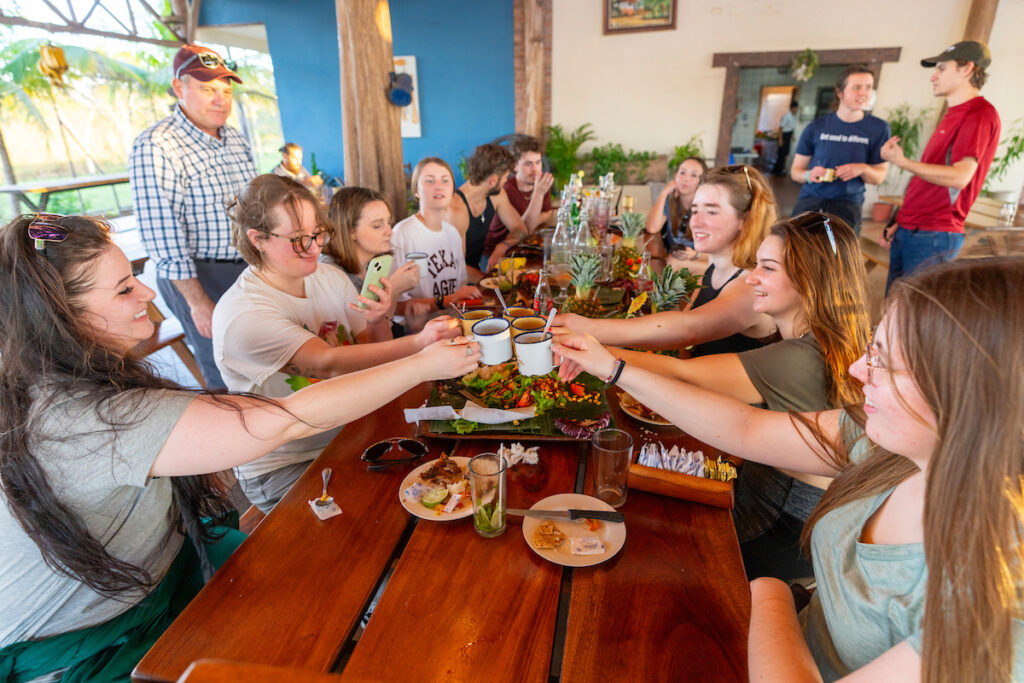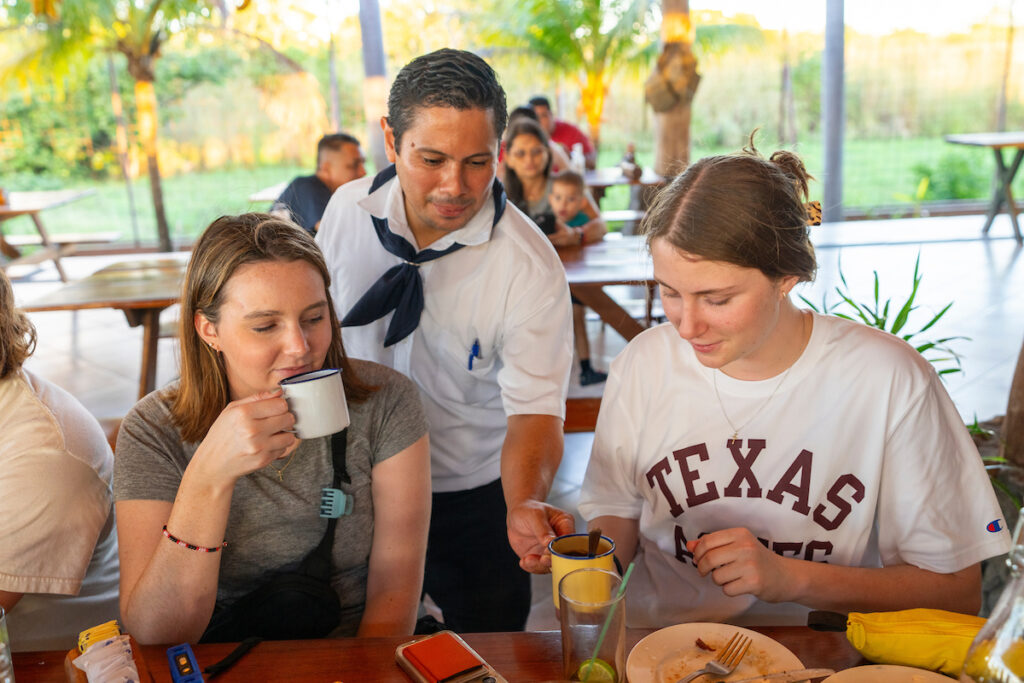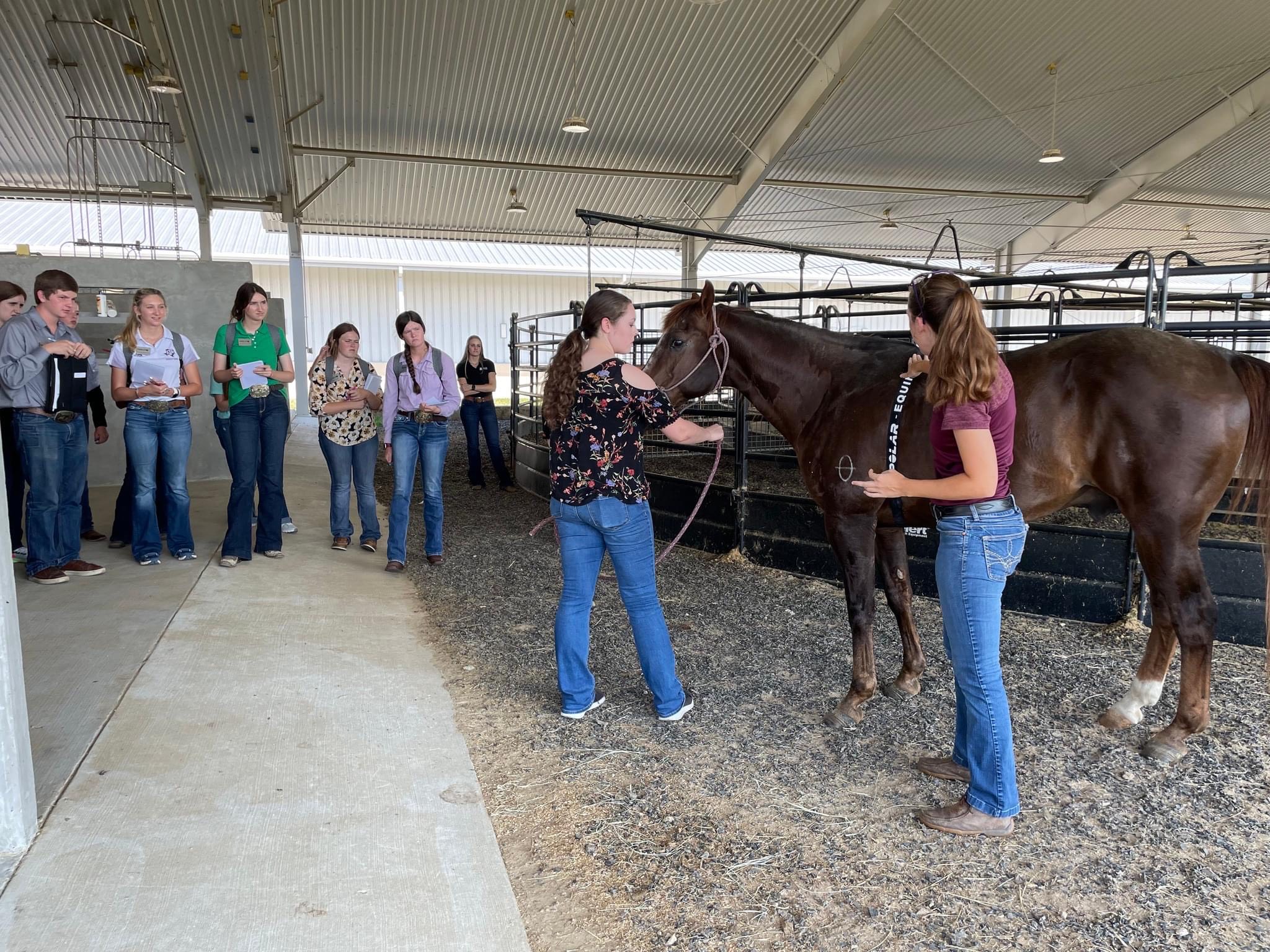The magazine of Glion Institute of Higher Education
- What is tourism and hospitality?

Tourism and hospitality are thriving industries encompassing many sectors, including hotels, restaurants, travel, events, and entertainment.
It’s an exciting and dynamic area, constantly evolving and adapting to changing customer demands and trends.
The tourism and hospitality industry offers a diverse range of career opportunities that cater to various interests, skills, and qualifications, with positions available from entry-level to executive management.
The booming tourism and hospitality industry also offers job security and career growth potential in many hospitality-related occupations.

What is tourism?
Tourism is traveling for leisure, pleasure, or business purposes and visiting various destinations, such as cities, countries, natural attractions, historical sites, and cultural events, to experience new cultures, activities, and environments.
Tourism can take many forms, including domestic, or traveling within your country, and international tourism, or visiting foreign countries.
It can also involve sightseeing, adventure tourism , eco-tourism, cultural tourism, and business tourism, and it’s a huge contributor to the global economy, generating jobs and income in many countries.
It involves many businesses, including airlines, hotels, restaurants, travel agencies, tour operators, and transportation companies.
What is hospitality?
Hospitality includes a range of businesses, such as hotels, restaurants, bars, resorts, cruise ships, theme parks, and other service-oriented businesses that provide accommodations, food, and beverages.
Hospitality is all about creating a welcoming and comfortable environment for guests and meeting their needs.
Quality hospitality means providing excellent customer service, anticipating guests’ needs, and ensuring comfort and satisfaction. The hospitality industry is essential to tourism as both industries often work closely together.
What is the difference between tourism and hospitality?
Hospitality and tourism are both related and separate industries. For instance, airline travel is considered as part of both the tourism and hospitality industries.
Hospitality is a component of the tourism industry, as it provides services and amenities to tourists. However, tourism is a broader industry encompassing various sectors, including transportation, accommodation, and attractions.
Transform your outlook for a successful career as a leader in hospitality management
This inspiring Bachelor’s in hospitality management gives you the knowledge, skills, and practical experience to take charge and run a business

Is tourism and hospitality a good career choice?
So, why work in hospitality and tourism? The tourism and hospitality industry is one of the fastest-growing industries in the world, providing a colossal number of job opportunities.
Between 2021 and 2031, employment in the hospitality and tourism industry is projected to expand faster than any other job sector, creating about 1.3 million new positions .
A tourism and hospitality career can be a highly rewarding choice for anyone who enjoys working with people, has a strong service-oriented mindset, and is looking for a dynamic and exciting career with growth potential.
Growth and job opportunities in tourism and hospitality
Tourism and hospitality offers significant growth and job opportunities worldwide. The industry’s increasing demand for personnel contributes to economic and employment growth, particularly in developing countries.
The industry employs millions globally, from entry-level to high-level management positions, including hotel managers, chefs, tour operators, travel agents, and executives.
It provides diverse opportunities with great career progression and skill development potential.
Career paths in tourism and hospitality

There are many career opportunities in tourism management and hospitality. With a degree in hospitality management, as well as relevant experience, you can pursue satisfying and fulfilling hospitality and tourism careers in these fields.
Hotel manager
Hotel managers oversee hotel operations. They manage staff, supervise customer service, and ensure the facility runs smoothly.
Tour manager
Tour managers organize and lead group tours. They work for tour companies, travel agencies, or independently. Tour managers coordinate a group’s transportation, accommodations, and activities, ensuring the trip runs to schedule.
Restaurant manager
Restaurant managers supervise the daily operations of a restaurant. They manage staff, ensure the kitchen runs smoothly, and monitor customer service.
Resort manager
Resort managers supervise and manage the operations of a resort. From managing staff to overseeing customer service, they ensure the entire operation delivers excellence.
Entertainment manager
Entertainment managers organize and oversee entertainment at venues like hotels or resorts. They book performers, oversee sound and lighting, and ensure guests have a great experience.
Event planner
Event planners organize and coordinate events, such as weddings, conferences, and trade shows. They work for event planning companies, hotels, or independently.
vent planners coordinate all aspects of the event, from the venue to catering and decor.
Travel consultant
Travel consultants help customers plan and book travel arrangements, such as flights, hotels, and rental cars. They work for travel agencies or independently. Travel consultants must know travel destinations and provide superb customer service.
What skills and qualifications are needed for a career in tourism and hospitality?

Tourism and hospitality are rewarding industries with growing job opportunities. Necessary qualifications include excellent skills in communication, customer service, leadership, problem-solving, and organization along with relevant education and training.
Essential skills for success in tourism and hospitality
A career in the tourism and hospitality industry requires a combination of soft and technical skills and relevant qualifications. Here are some of the essential key skills needed for a successful career.
- Communication skills : Effective communication is necessary for the tourism and hospitality industry in dealing with all kinds of people.
- Customer service : Providing excellent customer service is critical to the success of any tourism or hospitality business . This requires patience, empathy, and the ability to meet customers’ needs.
- Flexibility and adaptability : The industry is constantly changing, and employees must be able to adapt to new situations, be flexible with their work schedules, and handle unexpected events.
- Time management : Time management is crucial to ensure guest satisfaction and smooth operations.
- Cultural awareness : Understanding and respecting cultural differences is essential in the tourism and hospitality industry, as you’ll interact with people from different cultures.
- Teamwork : Working collaboratively with colleagues is essential, as employees must work together to ensure guests have a positive experience.
- Problem-solving : Inevitably, problems will arise, and employees must be able to identify, analyze, and resolve them efficiently.
- Technical skills : With the increasing use of technology, employees must possess the necessary technical skills to operate systems, such as booking software, point-of-sale systems, and social media platforms.
Revenue management : Revenue management skills are crucial in effectively managing pricing, inventory, and data analysis to maximize revenue and profitability
Master fundamental hospitality and tourism secrets for a high-flying career at a world-leading hospitality brand
With this Master’s degree, you’ll discover the skills to manage a world-class hospitality and tourism business.

Education and training opportunities in tourism and hospitality
Education and training are vital for a hospitality and tourism career. You can ensure you are prepared for a career in the industry with a Bachelor’s in hospitality management and Master’s in hospitality programs from Glion.
These programs provide a comprehensive understanding of the guest experience, including service delivery and business operations, while developing essential skills such as leadership, communication, and problem-solving. You’ll gain the knowledge and qualifications you need for a successful, dynamic, and rewarding hospitality and tourism career.
Preparing for a career in tourism and hospitality
To prepare for a career in tourism and hospitality management, you should focus on researching the industry and gaining relevant education and training, such as a hospitality degree . For instance, Glion’s programs emphasize guest experience and hospitality management, providing students with an outstanding education that launches them into leading industry roles.
It would help if you also worked on building your communication, customer service, and problem-solving skills while gaining practical experience through internships or part-time jobs in the industry. Meanwhile, attending industry events, job fairs, and conferences, staying up-to-date on industry trends, and networking to establish professional connections will also be extremely valuable.
Finding jobs in tourism and hospitality
To find jobs in tourism and hospitality, candidates can search online job boards, and company career pages, attend career fairs, network with industry professionals, and utilize the services of recruitment agencies. Hospitality and tourism graduates can also leverage valuable alumni networks and industry connections made during internships or industry projects.
Networking and building connections in the industry
Networking and building connections in the hospitality and tourism industry provide opportunities to learn about job openings, meet potential employers, and gain industry insights. It can also help you expand your knowledge and skills, build your personal brand, and establish yourself as a valuable industry professional.
You can start networking by attending industry events, joining professional organizations, connecting with professionals on social media, and through career services at Glion.
Tips for success in tourism and hospitality

Here are tips for career success in the tourism and hospitality industry.
- Gain relevant education and training : Pursue a hospitality or tourism management degree from Glion to gain fundamental knowledge and practical skills.
- Build your network : Attend industry events, connect with colleagues and professionals on LinkedIn, and join relevant associations to build your network and increase your exposure to potential job opportunities.
- Gain practical experience : Look for internships, part-time jobs, or volunteering opportunities to gain practical experience and develop relevant skills.
- Develop your soft skills : Work on essential interpersonal skills like communication, empathy, and problem-solving.
- Stay up-to-date with industry trends : Follow industry news and trends and proactively learn new skills and technologies relevant to tourism and hospitality.
- Be flexible and adaptable : The tourism and hospitality industry constantly evolves, so be open to change and to adapting to new situations and challenges.
- Strive for excellent guest service : Focus on delivering exceptional guest experiences as guest satisfaction is critical for success.
Tourism and hospitality offer many fantastic opportunities to create memorable guest experiences , work in diverse and multicultural environments, and develop transferable skills.
If you’re ready to embark on your career in tourism and hospitality, Glion has world-leading bachelor’s and master’s programs to set you up for success.
Photo credits Main image: Maskot/Maskot via Getty Images

LIVING WELL

HOSPITALITY UNCOVERED

BUSINESS OF LUXURY

LISTENING TO LEADERS

WELCOME TO GLION.
This site uses cookies. Some are used for statistical purposes and others are set up by third party services. By clicking ‘Accept all’, you accept the use of cookies
Privacy Overview

- Why Study hospitality?
- Your Future Career
- Why Choose EHL?
- Awards & Rankings
- Our History
- Academic Governance
- Accreditations & Memberships
- Professional Path to the Bachelor Degree
- Preparatory Year
- Student Business Projects
- Bachelor Internships
- Direct Entries & Transfers
- EHL Junior Academy Campus Lausanne
- EHL Junior Academy Campus Singapore
- EHL Junior Academy Campus Passugg
- Master's Degrees
- MBA Programs
- Culinary & Restaurant Management Certificate (CREM)
- Bachelor in Lausanne
- University Transfers & Direct Entries
- Bachelor in Singapore
- Fees for Bachelor students eligible for A-HES
- Learning Philosophy
- Our Faculty
- Swiss Education Excellence
- Research Projects & Publications
- Inauguration
- Student Life in Lausanne
- Campus Lausanne Guided Tour
- Explore Lausanne & Switzerland
- Campus Lausanne Contacts
- Student Life at EHL Campus (Singapore)
- Explore Singapore
- Explore the Region
- Campus (Singapore) Contacts
- Contact our Program Advisors
- Chat with our Students
What is hospitality?
Hospitality means extending a welcome to guests or offering a home away from home, and the word is derived from the Latin word “hospes” meaning host, visitor or stranger. The hospitality and tourism industry is a vast sector that includes all the economic activities that directly or indirectly contribute to, or depend upon, travel, tourism and hospitality.
This industry sector includes:
- Hotels & Resorts
- Restaurants & Catering
- Night Clubs & Bars
- Travel & Transportation
- Spas & Wellness
- Cruise Liners & Bus tours
- Cultural & Sports
- Business Administration (events, communication, customer experience, and many more )

Bachelor of Science in International Hospitality Management
Discover the EHL Bachelor's program meticulously crafted by our Hospitality Management School to meet the evolving needs of the hospitality and tourism industry.
Our curriculum strikes a balance between hands-on experience, academic excellence, and business acumen. It also provides a unique opportunity for students to study in two premier locations: Switzerland and Singapore.
Immerse yourself in practical courses, workshops and two six-month internships, providing real-world insights aligned with industry demands.

The History of Hospitality & Tourism
Hospitality is one of the oldest businesses, going way back to the innkeepers and taverns of biblical times. Tourism, on the other hand, is a more recent invention which began in Europe, with Switzerland being one of the first countries to develop special accommodation and services for travelers.
In the late 1800’s, the concept of leisure tourism and hospitality spread across Europe, bringing flocks of wealthy travelers to Switzerland. It began with visitors seeking cultural and natural exposure on guided tours in the Swiss Alps, train rides and wellness tourism. Palace-style hotels, thermal baths and ski resorts became icons of luxury tourism in Switzerland.
This new generation of wealthy guests had higher expectations for comfortable accommodations, convenient services and fine dining. The leisure travel phenomenon gave birth to hospitality management schools: EHL was founded as the first hotel management school in 1893 in Lausanne, and it has pioneered in hospitality management education since then.
Hospitality is one of the most resilient, adaptable and dynamic industries on the planet. It is an industry of constant change, where technology and innovation are being integrated to improve the guest experience.

What is Tourism and Hospitality Management?
Careers in hospitality management.
Hospitality management is a broad career field that provides many opportunities for international career progression. In the core of the hospitality industry alone (hotels, events, restaurants, etc.) graduates with a hospitality degree can become managers in a variety of departments and sectors, or choose to specialize in one area.
The career paths are as diverse as the industry, and with so many new hospitality concepts and innovation changing the industry, the career paths will continue to grow and evolve with technology and trends of the 21st.
Hospitality education at EHL teaches students to love learning because it takes a scientific approach that sparks curiosity and involves the five senses.
_Faculty%20&%20Students%20Discussion%201.jpg)
What are Hospitality Management Skills?
Studying at ehl, the world's 1st hospitality management school.
In the field of hospitality management, customer satisfaction is key, and the primary goal is to ensure the best customer experience possible. Therefore, hospitality management courses teach both professionally-focused hard skills (room pricing, cost-control, accounting, scheduling, etc. ) and soft skills which are related to how one acts, and interacts in a professional environment.
Training for soft-skills is critical to succeed in the 21st century: critical thinking, agility and adaptability, effective communication, imagination and curiosity: these are all skills students develop at EHL in our hospitality management courses and degrees.
#hospitality-industry
See More Articles

Creating memorable guest experiences: Personalization with storytelling
May 8, 2024

Hospitality management careers list for hotel enthusiasts
May 7, 2024

How Airbnb and short-term rentals reshape rural and urban communities
May 2, 2024
- Bachelor Degree in Hospitality
- Pre-University Courses
- Master’s Degrees & MBA Programs
- Executive Education
- Online Courses
- Swiss Professional Diplomas
- Culinary Certificates & Courses
- Fees & Scholarships
- Bachelor in Hospitality Admissions
- EHL Campus Lausanne
- EHL Campus (Singapore)
- EHL Campus Passugg
- Host an Event at EHL
- Contact our program advisors
- Join our Open Days
- Meet EHL Representatives Worldwide
- Chat with our students
- Why Study Hospitality?
- Careers in Hospitality
- EHL Network of Excellence
- Career Development Resources
- Route de Berne 301 1000 Lausanne 25 Switzerland
- Privacy Policy
- Legal Terms
© 2024 EHL Holding SA, Switzerland. All rights reserved.
- Hospitality Industry
What is the hospitality industry? All your questions answered

March 28, 2024 •
20 min reading
The hospitality industry is a large subsection within the service industry and is comprised of four main areas : Food & beverage, travel & tourism, lodging, and recreation. As examples, the F&B category includes restaurants, bars, and food trucks; travel & tourism covers different forms of transportation and travel agencies; lodging varies from hotel resorts to hostels; recreation refers to leisure activities such as sports, wellness, and entertainment. While all sectors are interconnected and reliant on each other, many of these hospitality sectors are quickly evolving due to new technologies and changing customer mindsets.
Known for being one of the main industries that is easily impacted by external forces, many questions have recently come up regarding the state of hospitality today. What trends are shaping its future? What makes it still one of the world's fastest-growing industries? How can it remain competitive? How to deal with the post-Covid staff shortages?
Read on to find out the experts' guide on what is happening in this exciting, evolving, and resilient sector.
A brief history of hospitality
How fast is the hospitality industry growing, hospitality industry overview: key statistics, hospitality industry growth: what trends are driving it, what major challenges is the hospitality industry facing, travel and hospitality industry: top trends, what the top ceos are saying about the future of the hospitality and tourism industry, what leaders can do to ensure hospitality businesses remain competitive, the hospitality management careers of tomorrow, future of hospitality: what's on the horizon for hospitality & tourism professionals, how has the hospitality industry evolved since its origins.
Derived from the latin word “hospes”, meaning host (one who provides lodging or entertainment for a guest or visitor), hospitality has its roots in ancient history. The ancient Greeks used the word "xenia" to define the sacred rule of hospitality: the generosity and courtesy shown to those who are far from home or associates of the person bestowing guest-friendship. Away from home, surrounded by strangers and yet feeling welcome.
Although the original concept of hospitality has remained largely unchanged since its origins (meeting travelers’ basic needs such as providing food and accommodation), the idea of building hotels for the sole purpose of hosting guests emerged alongside technological advances and better means of transportation towards the end of the 18th century. Since then, the sector been in constant expansion due to the very concept of hospitality being applicable to any sector that deals with customer service and satisfaction.

Along with the overall economy, the global hospitality industry has enjoyed a spurt of massive growth over the last decade since the end of the financial crisis. According to the World Bank , the global economy has grown at a pace of more than three percent per year up until the global pandemic hit in 2019/20. Due to pent up demand during the beginning of the COVID-19 pandemic there was an acceleration of the global economy in 2021 of 5.5 percent growth, however it is set to decelerate to 4.1 percent in 2022 and 3.2 percent in 2023, arriving back at pre-pandemic levels.
This unprecedented expansion over the last decade has benefited the hospitality and tourism industry by stimulating the world population’s travel activity, adding countless room nights in both leisure and business travel .
1. International arrivals have increased from 900 million to more than 1.3 billion over a span of just ten years.
Not only has this boosted the number of rooms on offer, but has also led to a major contribution of global employment opportunities. Covid-19 had a severe impact and international tourist arrivals according to figures from UNTWO , which after years of steady annual growth saw a staggering -73% drop in arrivals in 2020 and -71% in 2021 due to travel restrictions in response to Covid-19.
All in all 2020 is recognized as the worst year in tourism history with 1 billion fewer international arrivals and US $ 1.1 trillion in international tourism receipts. Around -74% drop according to the latest data from World Tourism Organization (UNWTO) a level of 30 years ago.
However, so far the travel industry has seen an extremely positive bounce back. New data from UNTWO found that, overall, international arrivals reached 80% of pre-pandemic levels; in the first quarter of 2023.
Tourism figures are heading in the right direction as an estimated 235 million tourists traveled internationally in the first three months, more than double the same period of 2022.
2. The World Travel and Tourism Council ( WTTC ) names the hospitality industry’s importance as a main driver in global value creation.
Recent figures published by the WTTC found that in 2022 the Travel & Tourism sector made a contribution of 7.trillion USD to the global economy, 7.6% of the global GDP and 23% below pre-pandemic levels.
3. The hospitality and travel industry accounts for one out of every ten employment opportunities.
Bringing the number of people earning their living in the sector to a remarkable 330 million in 2022.
In 2022, there were 22 million new jobs, representing a 7.9% increase on 2021, and only 11.4% below 2019.
The rise in revenue does not only benefit international companies and hotel owners, but also acts as a major factor in job creation for local populations and destinations. As of the latest data, around 173 million people were employed in the hotel and motel industry before the Covid-19 pandemic hit.
The WTTC forecast that there will be an additional 126 million jobs created between now and 2032.
4. The overall growth in the travel and tourism industry stands at +5.8% Vs. Overall GDP +2.7%.
According to the Hospitality Global Market Report 2023 the global hospitality marketgrew from $4,390.59 billion in 2022 to $4,699.57 billion in 2023 at a compound annual growth rate (CAGR) of 7.0%.
This large growth rate is in part the bounce back from global restrictions on travel. The market is expected to continue growing but at a slower rate due to the global economic situation with a Compound Annual Growth Rate (GAGR) of +5,8% forecasted between 2022 and 2032.

Image source: World Travel & Tourism Council, Travel & Tourism Economic Impact 2022
1. The global economy growth has created positive momentum in the sector by contributing to the overall income per capita.
Since 2009, the global GDP has constantly increased at an average pace of almost two percent per annum, leading to a growing demand for both international and domestic travel spending. Whilst the Covid-19 pandemic led to a shock -2.81% decline in GDP in 2020 according to Statista , 2022 figures and subsequent projections for 2023 show year-on-year growth.
2. Airfares have consistently become more affordable over the last three decades, but will this last?
Thanks to lower fuel prices, carrier competition and the rise of low-cost airlines . While these are not happy news for the airline industry, which is using ancillary fees to increase profit margins, it benefits travelers who can get more from their purchasing power. However the emerging global energy crisis could put a halt to such a trend and airlines could pass on the price hikes to the consumer, which will in turn impact consumer travel behaviour.
3. Corporate travel is yet another contributor to the healthy outlook and is projected to keep growing.
In China and India, the growth of business travel is particularly steep due to the relentless pace of economic expansion in this part of the world.
4. The health and wellness segment has boomed in recent years.
There has never been so much appetite among the public for wellness and the escapism travel can offer from life’s stresses - the pandemic taught us to slow down and not to take our health for granted.
The global consumer health and wellness market is a $1.5 trillion market growing at 5 to 10 percent a year, and, according to a recent McKinsey survey, people around the world are increasingly interested in taking care of themselves and are planning to spend more money on wellness products and services.
5. Hotel operators are seeking to expand their portfolios through targeted acquisitions of smaller regional chains.
Mergers and Acquisitions activity in hospitality has somewhat cooled over the last few years , with operators seeking to expand business in a more controlled way.
1. The threat of climate change
The threat of climate change will adversely impact many major tourist destinations. Threats resulting from climate change, safety and security issues, as well as unprecedented migration streams are tomorrow’s game changers. The main challenges for the hospitality industry are the lack of predictability and the magnitude of such events – and how fast the industry can react and adapt. Hybrid operations might be one of the hospitality 4ndustry’s possible responses to increased risks.
2. Industry consolidation
Corporate consolidation has led to increasing concentration of size and power among the top players. Hotel operators will seek to expand their portfolios through targeted acquisitions of smaller regional chains. While the ultimate goal is to create value through cross-organizational synergies, this development also comes with downsides, as the management of structures with a diverse selection of geographies and a plethora of brands generates more complexity and threatens to increase overall rigidity.
Marriott and Hilton remain the world’s most valuable hospitality brands, valued in 2023 at $53.5B and $37.99B respectively.
3. New competition from tech and digital players
Are major technology firms such as Google or Facebook threatening to replace hotel brands by offering technological solutions and creating novel markets to attract new types of customers? Thanks to their control over all types of data related to customer behavior both off- and online, tech behemoths could oust traditional incumbents into niche markets. Companies that fail to identify their niche are at risk of becoming mere revenue generators for technology companies. Some big enough brands may survive, but their business will get tougher .
4. Skilled talent shortage
As the accommodation and restaurant industry is creating jobs at the fastest rate of any sector in the economy according to the International Labor Organization, fuelling this growth with the right skilled labor is yet another concern for owners. Attracting and retaining younger generations of hospitality professionals will require a lot of flexibility and attention from hoteliers in the future.
5. Energy crisis
The global energy crisis is the perfect storm of multiple factors causing a huge surge in energy demand which the limited global resources are struggling to fulfil. Added to this is Russia’s invasion of Ukraine, one of the main suppliers to Europe. Whilst the world grapples with accelerating the development of green infrastructure, the hospitality industry has an even bigger incentive to make efforts to switch to renewable energy sources where possible, not only as our environmental social responsibility but also to reduce the reliance on particular states which fuels the weaponization of energy.
6. Supply chain issues
Supply chain issues have affected most of the world, although Europe was the hardest hit, according to data from the 2022 State of the Third-Party Logistics Industry Report by Extensiv.
These issues are ongoing and are triggered by undulating demand, price volatility and uncertainty. The hospitality industry is affected on an operational level when bottlenecks cause delays on delivering food & drink, bed linen, housekeeping products and other replenishable goods. Running out of these items means giving customers a disappointing experience and leaving a poor impression that could diminish the business’s reputation.
7. Economic downturn
According to the UNWTO Panel of Experts , the economic situation remains the main factor weighing on the effective recovery of international tourism in 2023, with high inflation and rising oil prices translating into higher transport and accommodation costs. As a result, tourists are expected to increasingly seek value for money and travel closer to home.
Is there a silver lining? Well, we know that economic downturns make way for innovation and entrepreneurship ! The public needs new solutions for new problems, so now may just be the time to start thinking of your next business venture.

Travelers' expectations have greatly evolved especially now that technology is taking center stage in every area of guest experience. As 2024 progresses, hospitality professionals are gearing up to leverage various innovations and strategies that promise to reshape customer satisfaction and industry standards. Here are hospitality trends 2024 elevating guest satisfaction and driving business growth.
1. Towards sustainable travel
The reasons we desire to travel are many and include experiencing the beautiful things the world has to offer, meeting new people, supporting local culture, etc. In fact, more than 33,000 travelers across 35 countries and territories have been surveyed in Booking.com's Sustainable Travel Report 2023 . 76% of global travelers say they want to travel sustainably over the next 12 months.
Ecotourism is all about intentionally organising travel plans in a way that doesn't harm the environment. Thankfully, sustainability is a major driving force in the hospitality industry, with hotels and restaurants welcoming eco-friendly initiatives to minimize their environmental footprint.
A growing number of hotels are rising to the challenge of running a sustainable business. Beyond plastic usage , general waste production, food waste, usage of local produce, energy and water consumption, and many other factors are to be considered for operators that are serious about their claim. Going one step further, the term sustainability is also often used not only for environmental protection but also corporations’ approach to managing their people and their finances. All across the board, resources of all kinds are being used more efficiently in the hospitality industry and while various strategies are being adopted by hotels, a paradigm shift is becoming more recognizable.
From implementing energy-efficient technologies to sourcing locally produced ingredients, businesses are prioritizing sustainability to appeal to eco-conscious travelers—which is echoed in the next point.
2. Wellness for holistic hospitality
A lot of guests today are looking for experiences that promote physical and mental well-being. Hotels that have embraced wellness travel can now cater to this demand by offering activities like yoga retreats, on-site spa treatments , fitness centers with cutting-edge equipment, and healthy dining options.
Creating a relaxing and stress-free environment through thought-out design elements can contribute to a holistic wellness encounter. Travelers return from their trip feeling refreshed, rejuvenated, and ready to take on their day-to-day life.
The wellness tourism market is projected to reach well over $1,700 billion, in accordance with Precedence Research . Even so, investing in the health niche is beneficial for guests and financially rewarding for businesses.
3. Enhanced experiences with advanced technology
The integration of artificial intelligence and other technologies is reshaping the hospitality industry. AI-powered chatbots are being employed for personalized customer service to provide instant assistance and support to guests throughout their stay. Whether it's answering inquiries, making reservations, or addressing issues, chatbots offer convenience for both guests and staff.
On the other hand, predictive analytics algorithms help with demand forecasting and pricing optimization. AI is gaining traction in the hospitality industry because of its enhanced data analytics of consumer behavior patterns and improved ability to meet client demands. Data-driven personalization enables hotels to tailor offerings and marketing messages to individual guest preferences.
Global Market Estimates predict that between 2021 and 2026, the niche will rise at a compound annual growth rate (CAGR) of approximately 10%. Robots are also making inroads into the hospitality industry in automating housekeeping tasks, food delivery, and concierge services. While robots cannot replace humans entirely, they free up hotel staff to focus on higher-level guest relations and contribute to operational efficiency.
Why contactless technology?
Contactless technology has become essential since the COVID-19 pandemic as a way to offer guests a safer, more convenient experience. These systems allow users to network with devices or complete transactions without physical contact, often achieved through short-range wireless communication, like tapping your phone to pay at a store.
Mobile check-in/out, digital room keys, and touchless payment options are now standard in most, if not all big hotel chains. This trend is expected to persist beyond 2024 as businesses prioritize contactless solutions to not only minimize the spread of germs but also meet a growing consumer preference for minimal physical contact.
Immersive virtual reality experiences
Hotels are using Virtual Reality or VR to offer immersive virtual tours so guests can preview accommodations and amenities before booking. While virtual reality offers the ultimate virtual experience, guest relations managers appreciate accessibility concerns.
For those without VR headsets, 360° videos provide a panoramic view of hotel space with just a phone or computer. Interactive floor plans also let you virtually walk through the hotel for a solid understanding of the layout. This has completely changed the way guests explore and engage with hospitality offerings.
VR-enhanced experiences, such as virtual city tours or immersive dining experiences create memorable moments for guests, too. VR technology will become more accessible in the future; therefore, its adoption in hospitality is a no-brainer.
Make each customer feel special with personalization
The global leader in employee and customer experience, Medallia Research Inc. , reports that 61% of consumers are willing to pay more for hyper-personalized experiences. Guests crave guest-centric services that cater to their every whim. This is not just about remembering names but also using guest data to anticipate preferences and offer tailored services .
Information can include previous booking history, preferred room types, special requests, dietary restrictions, leisure activities, and feedback from past stays. With collated information, hospitality teams can customize everything from room amenities to dining recommendations to boost guest satisfaction and loyalty.
Embracing experiential tourism
If you've been bitten by the travel bug and want something extraordinary, you should definitely consider experiential travel. The idea behind this travel concept is to forge a deeper connection with a given destination than can usually be had from traditional leisure holidays so guests experience it as authentically as possible.
These often involve an element of adventure, whether cultural, culinary, or spiritual; as such, tours mainly focus on less "touristy spots." For instance, after the pandemic, family ski vacations to Japan are preferable compared traditional choices like Aspen or Canada. Add-on experiences such as samurai sword-fighting or temple tours add an extra dimension to the travel experience.
Experiential tourism is now high on nearly every traveler's wish list because trips aren't restricted to international pursuits. This trend presents an opportunity for hotels to partner with local businesses and offer unique experiences like cooking classes, cultural excursions, and outdoor adventures. Such offerings create memorable and enriching guest experiences.
Integrating storytelling marketing
As the name suggests, storytelling marketing is a powerful tool for captivating audiences and creating emotional connections with brands. Hospitality businesses are now crafting authentic narratives to showcase their unique offerings, heritage, and values to resonate with guests on a deeper level. This type of marketing can also set the stage for experiential travel by providing context and inspiration for visitors.
Through captivating narratives, travelers can visualize themselves in the destination, immersing themselves in its culture, history, and natural beauty. Storytelling paints a vivid picture of the travel experience enough to spark curiosity and ignite wanderlust among potential travelers. When utilized properly, hotels and restaurants can differentiate themselves from their competitors and boost brand loyalty.
Technology integration for advanced data security
Data breaches can be devastating. Guests entrust hotels with sensitive personal information and as the hospitality industry becomes increasingly reliant on technology, data security is crucial. Hotels must implement robust cybersecurity measures to protect guest data and maintain trust.
This is where technology integration comes in; from cloud-based property management systems to smart room automation. It can ensure data security by implementing advanced encryption protocols and access controls across all integrated systems, safeguarding guest information from unauthorized access or breaches.
Further, continuous monitoring and regular updates of integrated technology systems can help detect and mitigate potential security threats. Embracing innovative technologies and staying abreast of industry trends can future-proof hotel business operations and boost guests' trust.
Commitment to net positivity
Sustainability is no longer a niche concern; it's an expectation for many travelers. Hotels that prioritize green practices like energy efficiency, water conservation, and local sourcing reduce their environmental footprint besides appealing to eco-conscious guests. The industry is moving beyond simply being sustainable to aiming for net positivity, with regenerative tourism that gives back to the environment.
Management with a vision
None of the discussed hospitality trends 2024 are possible without effective management. Leadership in the hotel industry requires a clear vision for the future, an ability to adapt to changing trends, and a commitment to continuous improvement. Hospitality leaders must invest in their own development and the teams they lead can ensure their businesses remain competitive and thrive in the years to come.

As an industry that depends on a stable environment in order to successfully operate - societal and environmental changes are having a greater impact on hospitality businesses compared to other industries. A recent global survey among CEOs by PwC has shown that heads of hospitality and leisure companies are notably less confident about their companies’ prospects for revenue growth in the near future than their counterparts in other sectors.
With disruptors in the industry, a wave of consolidation, and many external factors impacting their operations, hotel operators must find new ways to overcome these hurdles. Solutions to future challenges that companies are currently coming up with are the result of new thinking among the world’s business leaders and CEOs.
In a crowded field of competitors, hotels must find ways to distinguish themselves and position their property as distinctive destinations for customers , to develop preferences and loyalty in order to drive direct bookings. To do so, hotels must offer more highly personalized experiences that anticipate and go beyond the needs of their target customers – and count on word of mouth and allegiance to not only retain their customer base, but also grow it with more potential customers.
We have been a super good hospitality group for the last 50 years. We are not shying away from it. We are shifting and expanding the hospitality notion to Augmented Hospitality. We are being even more audacious and going one step further by saying: Since people want to be recognized, want to have something extremely personalized, why don't we try going from Augmented Hospitality to a Lifestyle Augmented Hospitality player? Sébastien Bazin, Chairman and CEO of Accor (Source: Accor TV - New Accor Strategy).
Other ways that are often discussed when dealing with the impending changes are the implementation of new technologies, training employees to move away from standard SOPs to become true high-touch experience providers and modernizing the service offering towards individualization and “lifestyle” to create true differentiation.

Fully take advantage of technology and personalization to create experiences
A generational shift towards how travelers are consuming hospitality services is making hotels evolve from being mere suppliers of accommodation to experience providers, leading to a need for outstanding customer relationships across all stages of their customer booking journeys .
Focus on talent acquisition and retention
From targeted recruitment efforts to a meaningful interview process and to the actual hiring and onboarding, organizations that are well-equipped to recruit in the era of millennials think holistically about the overall experience delivered to potential hires .
Embrace sustainability as part of your business model
As a result, a growing number of international hotel companies have developed sustainability and corporate social responsibility strategies . These initiatives can be perceived as the beginning of a paradigm shift toward a more positive and conscious form of hospitality which is highly valued among consumers today.

Reshaping the future of hospitality jobs
Over the past two decades, the hospitality industry has experienced significant growth, with international arrivals doubling from 600 million to over 1.4 billion in 2016 .
In 2023 however, in the wake of the global pandemic and facing increasing economic uncertainty hospitality has shown that it is resilient and a sector that consumers are just not willing forego entirely. Travel and tourism is an integral part of our lives therefore even as the global economy retracts the industry will always bounce back. This ability to withstand difficult times makes it a viable sector to launch a career for anyone with a hospitality mindset and appreciation for top-level service, culture, and leisure experiences.
It's clear that the industry is evolving and adapting all the time, making it a fantastic career opportunity for the problem solvers and innovators of tomorrow. Hospitality Management will provide a career rich in experiences, human connection, personal development and comes with many perks.
Employers across the board are looking for professionals with a combination of both hard and soft skills . In hospitality, developing skills such as cultural awareness, multitasking, customer service and communications is paramount to effectively deliver outstanding customer experiences.
The increasing complexity of the hospitality sector and evolution of its modus operandi - due to the expanded use of technology and data, the evolution of business models with the separation of management from operations or the ever-increasing trend of brands becoming publishers - is leading to the creation of new job profiles , such as asset managers, data scientists or content marketing specialists.
The Covid-19 crisis has underlined the global importance of the travel and tourism industry economically as well as its interconnection with other industries. From small tour operators to multinational hotel chains and major airlines, everyone in the industry has been impacted and continue to reset and recover.
To every negative repercussions of a crisis there is also some positive change that could be foreseen for the future. The World Economic Forum’s recent “Rebuilding Travel and Tourism panel” at the “Sustainable Development Impact Summit” explored the intersection of consumer consciousness, acceleration of technology and destination management and found some solutions that could have the potential to reshape the way we market, manage and plan our travel:
- Travelers are becoming more impact-conscious
- Tourists are looking for experiences in nature
- Digital solutions are improving sustainability
- Long-term progress requires cooperation
The end result is in an industry that will recover as it is an essential part of modern human lives that derive much pleasure and discovery from it. It is simultaneously undergoing huge digital transformation and other shifts to adapt to consumer sentiment, therefore a career in hospitality won't necessarily be a quiet one, but it will be an exciting adventure with a multitude of possible career paths to explore.

Keep reading

Hospitality management careers list for hotel enthusiasts
May 07, 2024

How Airbnb and short-term rentals reshape rural and urban communities
May 02, 2024

What does a Hotel Manager do?
The best step-up for a successful career in hospitality
Our Master's in Hospitality Management is an internationally recognized MSc qualification. You will have a choice of four academic routes: CSR & Sustainable Transformation, Finance, Real Estate & Consulting, Food & Beverage Management, or Luxury Experience Management. These routes enable you to specialize through your studies.
This is a title
This is a text
- Bachelor Degree in Hospitality
- Pre-University Courses
- Master’s Degrees & MBA Programs
- Executive Education
- Online Courses
- Swiss Professional Diplomas
- Culinary Certificates & Courses
- Fees & Scholarships
- Bachelor in Hospitality Admissions
- EHL Campus Lausanne
- EHL Campus (Singapore)
- EHL Campus Passugg
- Host an Event at EHL
- Contact our program advisors
- Join our Open Days
- Meet EHL Representatives Worldwide
- Chat with our students
- Why Study Hospitality?
- Careers in Hospitality
- Awards & Rankings
- EHL Network of Excellence
- Career Development Resources
- EHL Hospitality Business School
- Route de Berne 301 1000 Lausanne 25 Switzerland
- Accreditations & Memberships
- Privacy Policy
- Legal Terms
© 2024 EHL Holding SA, Switzerland. All rights reserved.
What to Know About Hospitality and Tourism Management Degree Programs
Hospitality management degrees are designed to train future leaders in the hospitality industry.
How to Study Hospitality Management

Getty Images
Running a company in any segment of the hospitality industry requires not only financial and marketing prowess, but also an understanding of how to create an inviting environment for guests.
The art and science of hosting strangers is an essential skill for people working in many kinds of businesses, including airlines, casinos, cruise ships, festivals, hotels and restaurants.
Running a company in any segment of the hospitality industry requires not only financial and marketing prowess, but also an understanding of how to create an inviting environment for guests. Cultivating that marketable skill set is the goal of associate, bachelor's and graduate programs in hospitality management.
What a Hospitality Management Degree Is and What Classes It Requires
The goal of any course of study in hospitality management is to train people to create and maintain spaces where others will immediately feel at home.
“Understanding how to take care of the customer is a foundational aspect of the hospitality discipline,” Angela Ramsey, senior director of communication at the University of Nevada—Las Vegas William F. Harrah College of Hospitality, explained in an email.
Hospitality management degrees are, foremost, degrees in business, says Michael Sabitoni, chair of the food and beverage management department and the international travel and tourism studies department at Johnson & Wales University in Rhode Island. They include classes in accounting, finance, human resources, law and technology, he says.
However, unlike a general business degree, a hospitality degree typically includes specialized coursework focusing on the hospitality industry, such as classes on food service business operations, event management principles, and hotel and resort leadership, Sabitoni says. An overview class about tourism is also typically included in hospitality management programs, and industry internships are often mandatory, he adds.
Many hospitality degree programs require students to participate in experiential learning by helping to operate a student-run hotel or restaurant. They may also contain classes on:
- Eco-tourism or sustainable travel
- Global tourism and special considerations involved with international trips
- Customer service protocols
- Assessing the quality of guest experiences
- Specific types of hospitality establishments, such as country clubs, golf courses, resorts, stadiums, timeshares or theme parks
- Nuances involved in planning certain kinds of events, such as conventions or weddings
- Concerns that face certain demographics of customers, including women and people of color
- Various types of tourism, including business trips and visits to cultural destinations or historical sites
Top Undergraduate Schools With Hospitality Management Majors
Many U.S. colleges and universities allow undergraduates to major in hospitality management, including multiple nationally renowned academic institutions. Cornell University of New York, an Ivy League college, has a school devoted to hospitality.
Exceptional hospitality programs are often based in major metropolitan areas that attract significant tourism. For example, New York University and Boston University in Massachusetts offer a hospitality management degree.
How to Know if a Hospitality Management Degree Is Right for You
An interest in the food and beverage sector, a love for travel or an interest in entertaining people may lead someone to consider pursuing a degree in hospitality management. But prospective students should be aware that the hospitality sector has leadership roles for people with all kinds of interests and personalities.
Though some managerial positions in the hospitality industry are customer-facing jobs that require significant people skills, there are also back-of-the-house managerial jobs that concentrate on logistics, Sabitoni says.
Significant cultural awareness and strong communication abilities are essential in hospitality. Foreign language skills are also valuable but not mandatory, Sabitoni says.
What You Can Do With a Hospitality Management Degree
Hospitality programs are designed to train future leaders in the sector.
“It can include anything within the hospitality vertical, from hotel investment companies to real estate firms to our big brands which are the Marriotts, the Hiltons, the Four Seasons, to data analytics companies to Googles to Amazons,” says Kate Walsh, dean of the Peter and Stephanie Nolan School of Hotel Administration at Cornell. “Anything that touches hospitality as a part of their business product is something where our students get involved.”
Real estate investment firms often invest in hotel buildings, so people with degrees in hospitality management sometimes find jobs in the real estate sector, Walsh says. Alumni of hospitality management programs sometimes become management consultants who concentrate on assisting companies in the hospitality industry, she adds.
Executive and director roles in the industry typically require at least a bachelor's degree. Many high-level leadership positions at U.S. hospitality firms pay annual salaries above $70,000, according to an article published by Monster.com, a job website.
In 2020, graduates of Cornell's Nolan School had an average base salary of slightly over $69,000 and an average bonus of nearly $15,000, according to the school's employment report .
Considerations for Potential Hospitality Students
Aspiring hospitality managers should be aware of trends that may affect them when they enter the industry, experts say.
This sector has severe labor shortages at hotels and restaurants, many of which laid off workers due to pandemic-related safety measures and now have struggled to replace those workers even after raising wages.
Because of these staffing concerns, many hospitality companies have introduced initiatives to recruit and retain talented staff, improve working conditions, increase job satisfaction and reduce employee turnover, Walsh says.
When comparing hospitality programs, prospective students should investigate whether those programs include experiential learning opportunities, experts say, noting that hands-on projects are one of the best ways to gain hospitality skills. It’s also optimal if hospitality schools offer courses on design, which can inform aesthetic choices about how a hospitality venue looks, according to experts.
“I think the industry needs innovative thinkers," Walsh says. "They need people who think big culturally, who are comfortable with different modes of work, so it’s a great time to join the industry. The industry is trying to be extremely intentional in providing compelling career paths.”
Searching for a grad school? Get our complete rankings of Best Graduate Schools.
Grad Degree Jobs With $100K+ Salaries

Tags: Travel , food and drink , education , students , graduate schools , colleges
You May Also Like
Premeds take 5 public health courses.
Rachel Rizal May 7, 2024

Fortune 500 CEOs With a Law Degree
Cole Claybourn May 7, 2024

Why It's Hard to Get Into Med School
A.R. Cabral May 6, 2024

Pros, Cons of Unaccredited Law Schools
Gabriel Kuris May 6, 2024

An MBA and Management Consulting
Sammy Allen May 2, 2024

Med School Access for Minority Students
Cole Claybourn May 2, 2024

Different jobs with med degree
Jarek Rutz April 30, 2024

Completing Medical School in Five Years
Kate Rix April 30, 2024

Dealing With Medical School Rejection
Kathleen Franco, M.D., M.S. April 30, 2024

Should I Get a Master's Before a Ph.D?
Andrew Warner April 29, 2024


- December 7, 2023
- Education Advice
Hospitality & Tourism Degrees: Everything You Need to Know
UOTP Marketing

Tourism has experienced massive growth as an industry in recent decades. Compared to the old days, people are now spending way more on travel, restaurants, and relaxation. What does that mean for the people employed in this industry? It means that the prospects are higher than ever. Also, this is the best time to get involved in studying hospitality and tourism .
Yet, earning a hospitality and tourism degree is not all that easy. Facilitating people’s experiences and managing hotels, catering, needs, and demands can indeed be rocket science. So read below to find out what you have to go through to get a degree in Hospitality and Tourism.
FREE RESOURCE

Download Our Free Guide to Jumpstarting Your Hospitality and Tourism Career
Discover all you need to know before you join the field.
Hospitality and Tourism Education Requirements
Many believe that they can succeed in the hospitality and tourism industry even without as much of an undergraduate degree. Although that is true for some positions, if you aim to pursue roles in higher levels of a company’s management hierarchy, you will need to work toward meeting some educational requirements.
To begin, as soon as you complete your secondary level education, it is wise to enroll in an undergraduate program, be it an associate or bachelor’s degree. With such degrees, you will have opened yourself up to many opportunities for entry-level positions within the management field.
Suppose you want better chances of landing a position, gaining an edge over your competitors, and showcasing your dedication toward improving yourself and your skill set. In that case, you should pursue a graduate degree.
The Bureau of Labor Statistics, which makes employment projections for more than 800 occupations, reports that the educational requirements for entry into professions from various fields are evolving. According to their reports, the need for a master’s degree to enter occupations is projected to grow by almost 17%, whereas for doctoral ones, about 13%.
To know more about how you can fulfill the education requirements for hospitality and tourism, continue reading below as we go through the various undergraduate and graduate degrees in this field, their duration, the careers available after you obtain each one, and the median salary associated with them.
Types of Hospitality & Tourism Degrees

There are different degrees you can pursue if you decide to study hospitality and tourism . They may include BA, Bachelor of Business Administration , BS, MS, MBA, PhD , and short term courses, covering everything from hotels, restaurants, cruise ships, amusement parks, destination marketing organizations, and convention centers or country clubs. You can get a degree in the hospitality and tourism industry from a University college dedicated to the studies of hospitality management or a business school with a relevant department.
Associate Degree in Tourism and Hospitality
An Associate degree may be of huge help for your career advancement. Yes, most entry-level management positions do not necessarily require a degree. But you still want to be recognized as a professional of the field you work in, no? Associate degrees can be divided into two-degree programs:
- Associate of Applied Science in Hospitality Management
- Associate of Science in Hospitality and Tourism
The Hospitality Management degree program offers thorough studies of theoretical and practical management skills, hospitality business law, and food and beverage management. Whereas, hospitality and tourism management degree programs aim to develop student’s skills in the areas of marketing, purchasing, budgeting, and cost control. Both of these programs differ in their emphasis, with one focusing more on management skills and the other on travel planning skills.
Bachelor’s Degree in Hospitality and Tourism Management
A bachelor’s degree in hospitality and tourism management gives you plenty of opportunities to work in leadership and management positions within the tourism and hospitality industry. Through a 4-year program, you can learn about the most significant concepts, skills, and values of the tourism and hospitality industry. Later on, you can use those skills to decision-making processes, problem-solving, and facilitating people’s experience in the travel and hospitality industry.
Master’s Degree in Hospitality and Tourism Management
Once you obtain a bachelor’s degree in hospitality and tourism management, you may be asking yourself if there are higher education options to pursue in this field, and if they’re really worth it? We would say that it depends on what you want to do in the future. Master’s degrees in hospitality and tourism usually take the form of MS (Master of Science) or MBA (Master of Business Administration). Around 15% of hospitality graduates go on to study further or combine study and work.
By pursuing an MS or MBA in hospitality and tourism, you can specialize in a particular hospitality-related function, or broaden your opportunities by moving into other career areas. Needless to say, the numbers of your salary will automatically increase as qualifications follow your experience.
Online Degree in Hospitality and Tourism

If you enjoy working with people, pursuing a degree in hospitality and tourism can be your call. But sometimes the circumstances don’t allow us to commit to a certain degree fully. That’s why the option of pursuing an online degree instead could just save the day. Whether you want to reduce costs or time, a hospitality management degree online can prepare you for a wide range of hospitality management jobs across the industry.
There are some great colleges that can offer you an online bachelor of science degree in hospitality management or an online bachelor of science in hospitality and tourism management. The best thing about these programs is that you can build your knowledge of the industry following your own pace. Corresponding courses will introduce you to the wide range of disciplines in the field, depending on if you’re looking for a career in culinary arts, hotel managing, or career opportunities in business administration.
What Skills Do You Need to Develop to Work on Hospitality and Tourism?
As with many other career fields, the tourism and hospitality industry encompasses a set of skills that you will need to develop in order to land a job and continue thriving professionally. Through a combination of technical and soft skills that you earn through your education, you showcase to your employers as well as customers that you are competent in your position and even ready for a promotion to better ones. Below, we’ll go through the top skills you need to develop to work in hospitality and tourism.
Customer service skills
Arguably, the most critical skill in the hospitality and tourism industry is customer service. After all, without customers, there would be no income, and without revenue, there would be no success in the industry. Developing such a skill is essential to your success as surveys show that business professionals as potential employers prioritize providing satisfactory customer experience before product/service and pricing.
As a professional in the tourism and hospitality industry, it is your responsibility to make your customers feel heard and valued, so they leave satisfied with your business.
It is a well-known fact that technology has evolved immensely in the last few decades to the point that nearly all industries are heavily reliant on it for daily operations. The hospitality and tourism industry is no different, as being knowledgeable and skilled in working with various networks and software is a must for all professionals. Some of the top digital skills one must possess to succeed in this field include:
- MS Office skills,
- online marketing and communication skills,
- operating systems use skills
- social media skills
- skills to monitor online reviews
Human resource management
As you begin to work in management positions, you will need the necessary skills to attract and retain employees and motivate them to work toward your shared goals. Human resource management skills will be crucial toward obtaining people suitable to provide the services of your business, expanding your resources, managing compensations, and many other things. Developing such a skill will give you an advantage over your competitors in any managerial role within the hospitality and tourism industry and beyond.
Communication
Communication is one of the top soft skills needed to succeed in the hospitality and tourism industry. Being skilled in effectively expressing your ideas, reporting on your duties, and dealing with customers from diverse backgrounds, is crucial in this industry. Being articulate is only one aspect of this skill, as other details such as body language and writing are some other aspects. From co-workers to mentors, mentees, and customers— proper communication will make everyone’s job easier.
Teamwork
Another soft skill you should develop is teamwork. You cannot go far in the tourism and hospitality industry without having people to help you; therefore, being a team player is a must. Studies support this claim, as they suggest that there are many benefits of having workplace collaboration , including an increase in customer satisfaction and sales, as well as better product quality.
If you are applying for an entry-level position or even jumping straight to managerial roles, your employers will consider how well you can fit in with their already-existing team when assessing you for the job.
Problem-solving
Because of the nature of the industry, with each customer being different from the other, problems can arise daily. You must be well-prepared and skilled in problem-solving to identify your customers’ problems, find solutions to their requests, and work on ways you can improve for the future. Developing skills in problem-solving will help keep your customers happy and help you flourish in this field.
Highest Paying Jobs in Hospitality

There are different jobs you can get involved in the industry of hospitality and tourism. From entry-level ones to top leadership positions that can pay you a fortune for your services. But of course that reaching those top positions requires quite the effort, work experience, and qualification. According to Monster.com ’s list – based on the data from BLS and salary.com, these are the highest paying jobs in the industry of hospitality and tourism:
1. Director of Housekeeping
Directors of Housekeeping ensure that rooms and premises are all clean and organized within the hotel they work with. Their duties include: maintaining and ordering supplies, investigating complaints, supervising housekeepers, training new employees, and ensuring customer satisfaction. The typical qualifications expected from Directors of Housekeeping are housekeeping experience, attention to detail, leadership, coaching skills, teamwork, and time management. Considering the nature of the job, you will also need a degree in hotel management. They get paid $74,712 per year.
Interested in pursuing a degree?
Fill out the form and get all admission information you need regarding your chosen program.
This will only take a moment.
Message Received!
Thank you for reaching out to us. we will review your message and get right back to you within 24 hours. if there is an urgent matter and you need to speak to someone immediately you can call at the following phone number:.
By clicking the Send me more information button above, I represent that I am 18+ years of age, that I have read and agreed to the Terms & Conditions and Privacy Policy , and agree to receive email marketing and phone calls from UOTP. I understand that my consent is not required to apply for online degree enrollment. To speak with a representative without providing consent, please call +1 (202) 274-2300
- We value your privacy.
2. Executive Casino Host
This position requires people who are naturally friendly and cheerful, as they have to draw casino customers with their attitude. The executive casino host supervises and coordinates employees working in the gaming area of a casino. Their work schedule involves extended hours and working outside traditional business hours. A bachelor’s degree in a field such as hospitality and tourism management is usually asked from them and some years of experience. They get paid $55,044 per year.
3. Executive Chef
Executive chefs are known for performing tasks outside of the kitchen too. Except for creating new recipes or planning menus, they are also involved in hiring or training food staff, maintaining the inventory for food supplies, purchasing orders, or creating food budgets. This means that they’re in charge of the daily operations of hotel and restaurant kitchens. Executive chefs make $67,632 per year.
4. Executive Pastry Chef
Pretty much the same job description of an executive chef corresponds to an executive pastry chef as well, except that, in this case, the executive pastry chef is responsible for a restaurant’s baking and dessert operations. Except for being charged for dessert recipes, these people also supervise employees, order supplies, and seek to harmonize the restaurant’s work with sanitation regulations. The annual salary of executive pastry chefs is $65,623 per year.

5. Flight Attendant
There’s so much more to flight attendants then just courtesy and elegance. They are responsible for ensuring that the safety and comfort needs of passengers are met during flights. They perform plenty of actions that involve emergency procedures and safety checks, with the purpose of properly directing passengers. These travel bugs are paid a whole $50,500 per year.
6. Food and Beverage Director
Food and beverage directors are responsible for offering guests the perfect dining experience, starting from the venue to everything service-related. These people are expected to be professionals of the field, with a formal qualification (degree or certificate ) and with relevant years of experience. They also supervise kitchen staff and plan the delivery of food in large establishments, catering companies, schools, or hospitals. They work closely with the HR to hire and train staff, and they get paid $72,248 per year.
7. Hotel Manager
Hotel managers strive to keep their guests happy, hotel operations efficient, and businesses profitable. They are responsible for much of the hotel-related functions, starting from checking guests in and out and supervising available rooms to managing dining areas and hiring and training staff. Hotel managers oversee multiple departments within hotel hospitality. A bachelor’s degree in hospitality or hotel management is typical for this job, and they get paid a whole $106,680 per year.
8. Meeting/Event managers
The position title pretty much sums up the job description. Convention, meeting and event planners try their best to understand their client’s needs and specifics regarding the aspects of event organization. These people coordinate all details related to location, booking, transportation, and professional calls. You’ll need some work experience to work in this field, and you’d get paid $78,589 per year as your fellow event managers currently are.
9. Restaurant General Manager
The role of general restaurant managers is mostly of a supervisory nature. These people are responsible for estimating food and supply needs, overseeing the placement of orders, managing the budget, and implement daily operations based on that budget. They’re also involved in hiring and training employees. Their role emphasizes the importance of providing cost-effective and high-quality services for guests. For this position, no formal education is necessarily required, yet, you must have prior work experience. Restaurant general managers get paid $53,127 per year.
10. Sommelier
Hotels and restaurants of high reputation, usually hire people to be their in-house wine experts. These wine experts are also called sommeliers, and they offer guests specific advice for the proper wine that combines best with their meal. Businesses in this industry also hire sommeliers to consult with them on particular wine choices for certain events. Imagine being paid a whole $56,551 per year to give your opinion on wine! Sounds fantastic, doesn’t it?
Benefits of a career in Hospitality and Tourism

Hospitality and tourism represent the most dynamic, fast-growing industry. To add to that, a career in this industry can be the most exciting step to take for yourself. Potential jobs you may seek are all about communication, adventure, and so many other advantages that have been proven to impact your wellbeing as well, both physically and psychologically. Read below to see the benefits we have highlighted for if you decide to follow this career path.
1. It’s doesn’t feel like work
Most of the jobs in hospitality and tourism are not typical 9-5 jobs. You get to live a hectic life, yes, but at least you get to do that outside the environments of a dull office. Hospitality was ranked #6 in the top 10 ‘Happiest industries’ based on responses such as ‘I’m excited about my work and projects,’ ‘I work with great people’ and ‘I feel recognized and appreciated.’
2. It provides you with global experiences
The nature of this industry is of the sort that you will learn many aspects of the global economy, traditions, and diversity of mindsets. Whether through traveling alone, or doing business with fellow hospitality businesses from different countries, you will see how different and yet alike we are. Learning about different cultures will always be part of your routine in this industry.
3. Social Interaction
You have to be a people’s person to pursue a degree in hospitality and tourism. That’s basically the beauty of it, as you get the chance to meet and greet so many personalities. It might be overwhelming for some individuals; however, it may become some of the things you most look forward to once you realize just how many valuable perspectives you can get from guests and clients with different backgrounds.
4. No day is the same
One day you’re traveling, the other you’re hosting, showing people around, or making sure they have the best experience of the place they’re visiting. This means that you won’t have to wake up every day just to perform the same monotonous tasks. And that adds so much thrill to your days and makes you look forward to work, because you never know what to expect within this industry.
5. Drives your curiosity
As no day is the same, you will always be driven by a curiosity to advance your career and see what else you can learn. We know that studies have shown how travel can broaden the mind, but that’s not the only fact anymore. Science now suggests that you can gain the same benefits that people get from traveling, also by working in the hospitality industry. You’ll have plenty of flexibility to take some time and absorb new things regarding your exciting job or question people for hidden gems.
6. Career growth opportunities
And we’re not just talking about professional growth, but for your personal growth as a human being as well. Upcoming generations are seeking out jobs that will excite them, according to the Harvard Business Review . They claim that ‘growth opportunities’ are some of the most important factors that push them to choose a career over the other. And of course, they will choose a career in hospitality , with all the worldwide travel opportunities and networking advantages.
Is a Degree in Hospitality & Tourism Management Worth It?
The bottom line is that although the hospitality and tourism industry is very exciting and dynamic, it won’t always feel like a never-ending holiday. We’re talking about a highly competitive and dynamic field, which demands well-trained professionals and a serious work ethic. To have all this baggage and stand out from other candidates, you need to complete an in-depth study program. You need this degree specifically if you aim for higher leadership positions because of the entry-level ones you could get even with some years of work experience.
So we do think that a degree in hospitality and tourism is worth it, yet, you should tailor the decision according to your long-term ambitions.
Frequently Asked Questions (FAQs)
What’s the difference between an ms and an mba in hospitality and tourism management.
An MS typically focuses on specialized knowledge and research within the industry, while an MBA emphasizes business administration skills applicable to various sectors, including hospitality.
Are there specific areas of specialization within these programs?
Yes, programs may offer concentrations like hotel management, event planning, sustainable tourism, or destination management, allowing students to delve deeper into their areas of interest.
What career advantages come with a master’s degree in this field?
A master’s can lead to greater industry recognition, increased earning potential, and opportunities for leadership roles.
Is work experience necessary before pursuing a master’s in hospitality and tourism?
While not always mandatory, having work experience can provide valuable insights and context that enrich the learning experience in a master’s program.
Are online programs as reputable as on-campus ones in this field?
Many reputable institutions offer online master’s programs in hospitality and tourism. The key is to ensure accreditation and evaluate factors like faculty expertise and industry connections.
What are some challenges specific to advanced studies in this field?
Challenges might include keeping pace with industry trends, balancing academic commitments with work (for those studying part-time), and ensuring alignment between academic theory and practical industry demands.
Do these programs usually offer networking opportunities or internships?
Yes, many programs facilitate internships or cooperative education experiences to help students gain practical skills. Additionally, they often provide platforms for networking through industry events, conferences, and alumni connections.
Share it with your friends!
Explore more.

Accounting vs. Finance Degree: Which Major to Choose?

12 Important Bookkeeping Skills You Need for a Successful Career
Recent resources.

What Can You Do With a Hospitality Management Degree? Best Hospitality Careers

What Can You Do with an International Studies Degree [2024]

9 Benefits of Learning a Second Language

Associate’s vs. Bachelor’s: Which One To Choose?
INTERESTED IN LEARNING MORE?
Chat with an Admissions Officer Now!

- Associates Degree
- Bachelors Degrees
- Masters Degrees
- Doctoral Degrees
- Faculty & Staff
- Accreditation
- Student Experience
QUICK LINKS
- Admission Requirements
- Military Students
- Financial Aid
Explore by Topics
- Engineering
- Finance & Business
- Health Sciences
Hospitality & Tourism
- Information Technology
- Racial Equity in Practice
- Employer Engagement
- Work-Based Learning
- Teaching Online
- Discover Career Interests
- Career Readiness Skills
- Prepare for First Internship
Explore by Tags
Need support, more hospitality & tourism resources, you are leaving naf.org, fund a future.

2024-25 Catalog
Hospitality and tourism management, hospitality and tourism management (a.s. career path and a.s. to b.s. degree), bar and beverage management specialization.
- Event Planning and Management Specialization
- Hotel Operations and Management Specialization
- Restaurant and Food Service Management Specialization
- Theme Park Specialization
Associate in Science Degree (CIP# 1252090101)
The Hospitality Industry and its corresponding requirement for trained management employees is expanding. Whether you are interested in learning employable skills for the hospitality industry or upgrading your current talents, Valencia has courses that may interest you. Valencia's Hospitality program combines classroom instruction with on-the-job training to help students move into supervisory and mid-management positions in lodging, Food Service, tourism and hospitality.
This program provides two Career Paths. One that is designated for students who seek immediate employment in the field of Hospitality and Tourism Management and/or a second Career Path for those who plan to utilize the articulated A.S. to B.S. career path to transfer to the University of Central Florida or Florida International University as a junior to complete a four-year Bachelor's degree in Hospitality Administration/Management.
Students are strongly encouraged to consult a Career Program Advisor in the department office for assistance in determining the best education plan for their career goals.
Students wishing to transfer any credits from this program to another institution must accept responsibility for securing approval from the transfer institution.
Although scheduling may not always provide for the following progression of courses, students should use the foundation, intermediate and advanced course sequence as a guide in program planning.
All degree-seeking students must satisfy entry testing requirements and satisfactorily complete all mandatory courses in reading, student success, mathematics, English, and English for Academic Purposes in which the student is placed.
Alternative Ways to Earn Credit toward this Degree
Graduates of specific programs at Orange Technical College and Osceola Technical College, as well as other institutions may be eligible to receive college credit for courses in this program. You may also be eligible to receive credit toward this degree if you have earned one of the approved Gold Standard industry certifications or Career Pathways credit. To learn more about Valencia’s award of credit options, visit valenciacollege.edu/transfer-agreements/ . Eligible students should contact the Career Program Advisor in their academic department for more information about the requirements for the award of credit.
College Credit Technical Certificates
The Hospitality and Tourism A.S. degree also offers the following college credit certificate programs. These certificates can put you on the fast-track to reaching your career goals. They are designed to equip you with a specialized skill set for entry-level employment or to upgrade your skills for job advancement. Most can be completed in one year or less, and all of the courses in the certificates are embedded in the A.S. degree. You can earn the certificates as you progress through your A.S. Degree or as a separate, stand-alone credential. Click on the Certificate tab at the top of the page for more information about the certificates that are offered.
- Bar and Beverage Management (18 credits) (CIP# 0252090508)
- Event Planning and Management (24 credits) (CIP# 0252090905)
- Guest Services Specialist (15 credits) (CIP# 0252090403)
- Hotel Operations and Management (30 credits) (CIP# 0252090402)
- Restaurant and Food Service Management (30 credits) (CIP# 0252090503)
Start Right
Degree-seeking students enrolling at Valencia for the first time will have a limited range of courses from which to choose for their first 18 college-level credits. Within the first 18 college credit hours, you will be required to take ENC 1101 (3 credits), and if applicable, SLS 1122 (3 credits) and a mathematics course appropriate to your selected meta-major (3 credits). The remaining courses will be chosen from the General Education Core Courses in humanities (3 credits), science (3 credits), or social science (3 credits), and/or the introductory courses within the A.S. degree programs. For specific courses see the Foundation Courses on the “Program Requirements” tab. For course sequencing recommendations, see your Career Program Advisor or create an education plan by logging into Atlas, clicking on the LifeMap tab and clicking My Education Plan.
Potential Careers
- Guest Services Specialist
- Front Office Supervisor/Manager
- Dining Room Manager
- Reservations Supervisor
- Food & Beverage Manager
- Lodging Manager/Assistant Manager
- Event Planner
- Catering/Sales & Service
- Convention Services
- Revenue Manager
Salary & Earnings Information
For career information related to this program, please visit O*Net OnLine .
Future Students
To learn more about this program, contact Enrollment Services at [email protected] or 407-582-1507 or visit https://valenciacollege.edu/hospitality-management
Current Students
Your Career Program Advisor contact information can be found in Atlas. Log into Atlas, click on the Courses tab, and check your Academic Profile information to find a link to your Advisor.
Faculty Program Chair Craig J. Rapp: 407-582-5617 [email protected]
Internship and Workforce Services
If you need assistance with job resources or in locating an internship, please visit: valenciacollege.edu/internship .
Career Path in Hospitality and Tourism Management
This degree is designed for students who seek immediate employment in the field of Hospitality and Tourism Management.
Program Outcomes
- Analyze information for decision making.
- Identify ethical and legal responsibilities specific to the field.
- Communicate clearly with technical and non-technical audiences.
Hotel Operations and Management Specialization
- Perform hospitality industry-specific workplace skills, related to hotel operations and management.
Event Planning and Management Specialization
- Perform hospitality industry-specific workplace skills, related to event planning and management.
Theme Park & Attractions Management Specialization
- Perform hospitality industry-specific workplace skills, related to Theme Park & Attractions Management.
Restaurant and Foodservice Management Specialization
- Perform hospitality industry-specific workplace skills, related to restaurant and foodservice management.
- Perform hospitality industry-specific workplace skills, related to bar and beverage management.
This course must be completed with a grade of C or better.
This course has a prerequisite; check description in Valencia catalog.
This is a general education course.
Any HFT or FSS course for which you meet the prerequisites, FOS 2201 Food Service Sanitation Management, or HUN 1004 Healthy Cuisine and Nutrition, TPA 1200 Basic Stagecraft, or TPA 2600 Stage and Production Management*, or TPA 2343 Computer Assisted Drafting for the Entertainment Industry
EVR 1001 : Introduction to Environmental Science is recommended for hospitality majors.
This course, HFT 2245, fulfills the hospitality management A.S. Career Path requirement, but it is not equivalent to UCF HFT 3540.
Career Path to B.S. in Hospitality and Tourism Management (Articulated A.S. to B.S.)
This degree is designed for students who wish to transfer to a four-year Florida public university as a junior to complete a Bachelor's degree in Hospitality Administration/Management.
- Perform hospitality industry-specific workplace skills, related to Theme Park & Attractions Management.
Any HFT or FSS course for which you meet the prerequisites, FOS 2201 Food Service Sanitation Management, or HUN 1004 Healthy Cuisine and Nutrition, TPA 1200 Basic Stagecraft, or TPA 2600 Stage and Production Management*, or TPA 2343 Computer Assisted Drafting for the Entertainment Industry
Specialized courses are mostly at the Downtown Campus and may not be offered every session or on every campus.
For students who are pursuing the A.S. to B.S. path, an additional 15 hours of General Education are required to satisfy the required 36 hours for the Bachelor of Science degree. If completing the additional 15 hours at the University, 6 hours will be in Cultural and Historical Foundations (Gordon Rule writing), 3 hours in Science Foundations, 3 hours in Social Science Foundations, and 3 hours in Communications Foundations. It is recommended for students complete their General Education requirements at Valencia prior to transfer. Students are strongly encouraged to speak with an advisor before selecting the additional General Education courses since requirements are different between the two institutions. Please see a Financial Aid advisor so that your enrollment is covered in these courses .
Please note the State University System foreign language admission requirement https://catalog.valenciacollege.edu/degrees/associateinarts/courserequirements/#Foreign_Language_Proficiency_Requirement
Upon earning the Hospitality and Tourism A.S. degree, you can also continue at Valencia to complete the B.A.S. degree in Business & Organizational Leadership . Additional education at the bachelor’s level can enhance your skills and create more career opportunities.
Students who wish to continue their education should consult with their Career Program Advisor to discuss transfer options and requirements, and determine the best education plan for their career goals. Students wishing to transfer credits from this program to another institution must accept responsibility for securing approval from the transfer institution for acceptance of this degree.
Hospitality - Bar and Beverage Management
Technical certificate.
This program prepares students for immediate employment in the hospitality and restaurant industry with employable skills in beverage management and service, beer, wine and beverage essentials, and fine spirits management and mixology.
- Analyze information for decision-making.
Specialized courses may not be offered every session or on every campus.
This certificate program is eligible for Financial Aid.
Hospitality - Guest Services Specialist
This program is designed to prepare students for immediate employment in the hospitality industry in the guest services areas of hotels, resorts, and other hospitality-related sites.
- Perform hospitality industry-specific workplace skills, related to guest services.
Any HFT or FSS course for which you meet the prerequisites, FOS 2201 Food Service Sanitation Management, or HUN 1004 Healthy Cuisine and Nutrition, or TPA 2600 Stage and Production Management*, or TPA 2343 Computer Assisted Drafting for the Entertainment Industry
All certificate courses are offered on the Downtown Campus; some courses are offered at other locations.
Hospitality - Hotel Operations and Management
This program is designed to prepare students for immediate employment in the hospitality industry in the rooms division of hotels, resorts, and other hospitality-related sites.
Hospitality - Event Planning and Management
This program is designed to prepare students for immediate employment in the hospitality industry with employable skills in the events planning area of hotels, resorts, convention centers and other hospitality-related sites.
Restaurant and Foodservice Management
This program is designed to prepare students for immediate employment in the hospitality industry in the food and beverage areas of hotels, resorts, and theme parks as well as in other hospitality-related sites.
- Perform restaurant industry-specific workplace skills.
Print Options
Send Page to Printer
Print this page.
Download Page (PDF)
The PDF will include all information unique to this page.
The Gordon Rule
State Board of Education Rule 6A-10.030, the Gordon Rule, requires that students complete with grades of C or better 12 credits in designated courses in which the student is required to demonstrate college-level writing skills through multiple assignments and six credits of mathematics course work at the level of college algebra or higher. These courses must be completed successfully (grades of C or better) prior to the receipt of an A.A. degree and prior to entry into the upper division of a Florida public university.
Read more...
General Education
Click read more to see Gen. Ed. courses.
UN Tourism | Bringing the world closer
Share this content.
- Share this article on facebook
- Share this article on twitter
- Share this article on linkedin
A United Vision for Nature - 'Nature Positive' Report Marks New Collaborative Era in Travel & Tourism
- All Regions
- 22 Apr 2024
WTTC, UN Tourism and the Sustainable Hospitality Alliance join forces to support Nature Positive Tourism

The leading players of Travel & Tourism globally have published a landmark joint report setting out their joint plan to help halt and reverse biodiversity loss.
Launched on Earth Day 2024, "Nature Positive Travel & Tourism in Action" is the creation of the high-level 'Nature Positive Tourism Partnership, made up of the World Travel & Tourism Council ( WTTC ), the World Tourism Organization ( UN Tourism ) and the Sustainable Hospitality Alliance ( the Alliance ).
For years, UN Tourism has been at the forefront of integrating tourism into the broader UN biodiversity agenda, including supporting the work of the Secretariat of the Convention on Biological Diversity (CBD)
Developed in collaboration with specialist consultancy ANIMONDIAL, the report is the sector's pledge to support the implementation of the Kunming-Montreal Global Biodiversity Framework (GBF), the UN's Biodiversity Plan.
It presents more than 30 case studies of inspiring and progressive actions from around the world involving large and small businesses, national and local government agencies, civil society groups, and inter-sectoral partnerships.
By offering actionable guidance and insights, this report not only highlights the intrinsic link between biodiversity and tourism's resilience, but also empowers businesses to become stewards of nature.
Historic partnership for nature
Ms. Julia Simpson, WTTC President & CEO , said: "This historic partnership with Travel & Tourism heavyweights is a significant step in our collective journey towards a more sustainable and responsible sector. This report is not merely a publication but a movement towards integrating environmental stewardship into the core of travel experiences. As we celebrate Earth Day, let us heed the call to nurture and protect our destinations. Our sector's reliance on nature, coupled with our expertise in creating inspiring and memorable experiences, means we are ideally placed to be guardians of nature."
Mr. Zurab Pololikashvili, Secretary-General of UN Tourism , said: "For years, UN Tourism has been at the forefront of integrating tourism into the broader UN biodiversity agenda, including supporting the work of the Secretariat of the Convention on Biological Diversity (CBD). This pivotal new collaboration among key global players sets a robust framework for sustainable practices that not only drive significant impact but also exemplify the power of united efforts in conserving biodiversity. This report is a testimony to what we can achieve together for nature's preservation, inspiring a global movement towards more sustainable and resilient tourism."
Mr. Glenn Mandziuk, Sustainable Hotel Alliance CEO , said: "This report is a milestone for Travel and Tourism, representing our commitment as an industry to protect and conserve nature. The Alliance is proud to contribute to and collaborate on this insightful and action-orientated report which will bring tangible change to destinations around the world, supporting biodiversity. Nature underpins our society, economies and indeed our very existence. The hospitality industry is today a leader amongst industries in its Nature Positive approach and this report signifies how much our industry understands the true value of nature."
Expert-led coalition
Recognising that the sector has a critical role to play in protecting and conserving biodiversity, the Nature Positive Tourism approach is designed to be a touchstone for actionable change. It focuses on equipping the sector with the tools and insights needed to nurture and protect destinations upon which it depends.
The commitment of the Partnership to work towards "net positive for nature" draws on extensive consultation with experts from business, government, academia and civil society, including the International Union for Conservation of Nature (IUCN) and the World Commission on Protected Areas (WCPA).
The report, which follows the 2022 WTTC report "Nature Positive Travel & Tourism", includes practical frameworks and real-world examples that encourage both travel providers and travellers to embark on journeys that contribute to the conservation of our natural treasures.
Related links
- Download News Release on PDF
- Report “Nature Positive Travel & Tourism”
- UN Tourism Biodiversity
- Sustainable Hospitality Alliance
Related Content
Un tourism puts spotlight on investments and empowermen..., un tourism calls for cross-cultural dialogue and climat..., un tourism and icca partner around sustainable developm..., un tourism launches women in tech startup competition: ....
- Skip to main content
- Skip to footer
AgriLife Today
Texas A&M AgriLife's digital magazine and newsroom
International study can open doors to a future in hospitality and more
Texas a&m expert shares how study abroad can enhance education, career .
May 8, 2024 - by Katharine Cook
Many Texas A&M College of Agriculture and Life Sciences students have the opportunity to gain international study experience, which can present them with unforgettable memories and lifelong lessons.
But for students in the Department of Hotel Management, Hospitality and Tourism , it can be a gateway to a new career.

Connor Clark, Ph.D., assistant professor in the department, said beyond the bucket-list type of experiences students can have while traveling, there is a wealth of career options and opportunities to be found when studying abroad.
“Whether you are interested in a career in hospitality or not, the act of studying abroad qualifies you as a tourist and is a great opportunity to learn about tourism experiences in different countries,” Clark said.
Studying abroad presents new experiences and new opportunities
Studying abroad is often regarded as a highlight of many students’ college experience, but it can be much more than a fun trip for students planning to enter the hospitality industry. Between industry visits on faculty-led programs and enriching lectures on new topics, embarking on an international education trip can open doors and teach students about new opportunities.
With firsthand knowledge, Clark said his study abroad in Latin America changed the trajectory of his career and allowed him to connect deeply with the culture.
“In my experience, studying abroad led to my whole career focusing on Latin American culture and hospitality,” he said. “I use my experience as a tool every day in my work.”
Learning career-specific skills and beyond

Exposure to different cultures and clientele enhances students’ ability to effectively serve tourists in their careers, Clark said.
One event management program in Scotland, led by Donna Lee Sullins, Ed.D., instructional assistant professor in the department, gives students foundational knowledge in event planning and management. Students attend four area festivals while volunteering alongside locals and get hands-on experience while refining their skills of venue evaluation and selection.
Clark also said if a student is studying where English is not spoken, learning a new language can help them become a global citizen and expand their job opportunities. He added that immersing yourself in a new language is the best way to learn.
“There are different customs, expectations and values that tourists have, and studying abroad and gaining knowledge of language will be invaluable in a career in hospitality,” Clark said.
Getting comfortable with the unfamiliar through studying abroad
While many students may feel nervous about leaving the comfort of the Bryan-College Station area, studying abroad presents them with personal development experiences that are unique to international travel.
Travel abroad programs provide some of the most enriching learning practices, and can teach students about themselves and their majors, while exposing them to other cultures and career paths, Clark said.
“It may be a little uncomfortable to embark on something unfamiliar,” Clark said. “But being able to get to know people and build real relationships with the local people and see how they live is an invaluable benefit.”

Media Inquiries
Laura Muntean , media relations coordinator [email protected] 601.248.1891
Are you interested in this content, need high resolution photos or assistance getting connected with an expert to learn more? Please contact our media relations team at [email protected] .
You May Also Like

Two College of Agriculture and Life Sciences students earn prestigious Brown-Rudder Award

College of Agriculture and Life Sciences advisors get an A+

Where passion meets science
A member of Texas A&M AgriLife
Texas A&M AgriLife Extension Service | Texas A&M AgriLife Research | Texas A&M Forest Service | Texas A&M Veterinary Medical Diagnostic Lab | College of Agriculture & Life Sciences
Texas A&M AgriLife
Phone: (979) 803-1287 [email protected]
More Information
- Resources for Press and Media
- Story Suggestion
Find Us on Social Media
About texas a&m university.
Work Values as Projections of Personal Values at Work: Evidence from Tourism and Hospitality Students
- Conference paper
- First Online: 28 April 2024
- Cite this conference paper

- Emmanouil Papavasileiou 3 , 4 ,
- Dimitrios Stergiou 3 &
- Irini Dimou 3
Part of the book series: Springer Proceedings in Business and Economics ((SPBE))
Included in the following conference series:
- International Conference of the International Association of Cultural and Digital Tourism
19 Accesses
Despite the importance of work values in students’ career development, little conceptual research has focused on articulating the dimensions represented within the construct and the exploration of empirical validity has been lagging. We provide evidence of validity for the conceptualization of students work values as projections of their personal values at the context of work. The data were collected from a Millennial-aged sample (born between 1981 and 1997) of tourism and hospitality students from Asia. Using confirmatory factor analysis, we show that this conceptualization is reliable and has better fit than competing theoretical models drawn on theory of work adjustment and self-determination theory. The cognitive, instrumental, affective and prestige typology of students work values provides a theoretically aligned approach, valuable to practitioners searching to explicate candidate employees’ expectations towards work. It also connects the stream of work values literature with the field of basic human values, directing future research within and beyond hospitality and tourism.
This is a preview of subscription content, log in via an institution to check access.
Access this chapter
- Available as PDF
- Read on any device
- Instant download
- Own it forever
- Available as EPUB and PDF
- Durable hardcover edition
- Dispatched in 3 to 5 business days
- Free shipping worldwide - see info
Tax calculation will be finalised at checkout
Purchases are for personal use only
Institutional subscriptions
Arciniega, L. M., Stanley, L. J., Puga-Méndez, D., Obregón-Schael, D., & Politi-Salame, I. (2019). The relationship between individual work values and unethical decision-making and behavior at work. Journal of Business Ethics, 158 (4), 1133–1148.
Article Google Scholar
Baruch, Y. (2014, January). The development and validation of a measure for protean career orientation. The International Journal of Human Resource Management , pp. 1–22.
Google Scholar
Bollen, K. A. (1989). Structural equations with latent variables . Willey.
Browne, M. W., & Cudeck, R. (1989). Single sample cross-validation indices for covariance structures. Multivariate Behavioral Research, 24 (4), 445–455.
Busque-Carrier, M., le Corff, Y., & Ratelle, C. F. (2022). Development and validation of the integrative work values scale. Revue Europeenne de Psychologie Appliquee, 72 (5).
Chen, P. J., & Tesone, D. V. (2009). Comparison of hospitality practitioners and student/practitioner work values. Advances in Hospitality and Leisure, 5 , 141–161.
Durvasula, S., Netemeyer, R. G., Andrews, J. C., & Lysonski, S. (2006). Examining the cross-national applicability of multi-item, multi-dimensional measures using generalizability theory. Journal of International Business Studies, 37 (4), 469–483.
Elizur, D. (1984). Facets of work values: A structural analysis of work outcomes. Journal of Applied Psychology, 69 (3), 379–389.
Fabrigar, L. R., Wegener, D. T., MacCallum, R. C., & Strahan, E. J. (1999). Evaluating the use of exploratory factor analysis in psychological research. Psychological Methods, 4 (3), 272–299.
Hair, J. F., Black, W. C., Babin, B. J., & Anderson, R. E. (2014). Multivariate data analysis . Pearson Education Limited.
Hu, L. T., & Bentler, P. M. (1999). Cutoff criteria for fit indexes in covariance structure analysis: Conventional criteria versus new alternatives. Structural Equation Modeling, 6 (1), 1–55.
Lofquist, L. H., & Dawis, R. V. (1978). Values as second-order needs in the theory of work adjustment. Journal of Vocational Behavior, 12 , 12–19.
Lyons, S. (2003). An exploration of generational values in life and at work [Unpublished doctoral dissertation]. Carleton University.
Neuman, Y., Pizam, A., & Reichel, A. (1980). Values as determinants of motivation. Annals of Tourism Research, 7 (3), 428–442.
Nunnally, J. C. (1978). Psychometric theory. New York, NY: McGraw-Hill.
Papavasileiou, E., Lyons, S., Shaw, G., & Georgiou, A. (2017). Work values in tourism: Past, present and future. Annals of Tourism Research, 64 , 150–162.
Papavasileiou, E. F., & Lyons, S. T. (2015). A comparative analysis of the work values of Greece’s ‘Millennial’ generation. The International Journal of Human Resource Management, 26 (17).
Papavasileiou, E., & Stergiou, D. (2023). Millennials work values: The school to work transition in tourism. Anatolia , 1–4.
Pizam, A., & Lewis, R. (1979). Work values of hospitality students. Hospitality Education and Research Journal, 3 (2), 5–16.
Pizam, A., Reichel, A., & Neumann, Y. (1980). The motivational profile and work values of hospitality students. Journal of Hospitality & Tourism Research, 5 (1), 25–38.
Ramírez, I., Fornells, A., & Del Cerro, S. (2022). Understanding undergraduates’ work values as a tool to reduce organizational turnover. Education and Training, 64 (3), 445–459.
Ryan, R. M., & Deci, E. L. (2000). Self-determination theory and the facilitation of intrinsic motivation, social development, and well-being. American Psychologist, 55 , 68–78.
Schwartz, S. H. (1992). Universals in the content and structure of values: Theoretical advances and empirical tests in 20 countries. In Advances in Experimental Social Psychology (Vol. 25, pp. 1–65). Academic Press.
Shaw, G., & Williams, A. (2009). Knowledge transfer and management in tourism organisations: An emerging research agenda. Tourism Management, 30 (3), 325–335.
Super, D. (1970). Work values inventory . Houghton Mifflin.
Wang, Y., & Li, X. (Robert). (2022). Developing and validating a scale of host territoriality in peer-to-peer accommodation. Tourism Management, 88 .
Download references
Acknowledgements
We would like to acknowledge our gratitude to Mr. Anthimos Georgiou for helping with the data collection.
Author information
Authors and affiliations.
Hellenic Open University, 26335, Patras, Greece
Emmanouil Papavasileiou, Dimitrios Stergiou & Irini Dimou
Hellenic Mediterranean University, 70014, Heraklion, Greece
Emmanouil Papavasileiou
You can also search for this author in PubMed Google Scholar
Corresponding author
Correspondence to Emmanouil Papavasileiou .
Editor information
Editors and affiliations.
University of West Attica, Athens, Greece
Vicky Katsoni
University of Malta, Msida, Malta
George Cassar
Rights and permissions
Reprints and permissions
Copyright information
© 2024 The Author(s), under exclusive license to Springer Nature Switzerland AG
About this paper
Cite this paper.
Papavasileiou, E., Stergiou, D., Dimou, I. (2024). Work Values as Projections of Personal Values at Work: Evidence from Tourism and Hospitality Students. In: Katsoni, V., Cassar, G. (eds) Recent Advancements in Tourism Business, Technology and Social Sciences. IACuDiT 2023. Springer Proceedings in Business and Economics. Springer, Cham. https://doi.org/10.1007/978-3-031-54342-5_22
Download citation
DOI : https://doi.org/10.1007/978-3-031-54342-5_22
Published : 28 April 2024
Publisher Name : Springer, Cham
Print ISBN : 978-3-031-54341-8
Online ISBN : 978-3-031-54342-5
eBook Packages : Business and Management Business and Management (R0)
Share this paper
Anyone you share the following link with will be able to read this content:
Sorry, a shareable link is not currently available for this article.
Provided by the Springer Nature SharedIt content-sharing initiative
- Publish with us
Policies and ethics
- Find a journal
- Track your research
- Election 2024
- Entertainment
- Newsletters
- Photography
- Personal Finance
- AP Investigations
- AP Buyline Personal Finance
- AP Buyline Shopping
- Press Releases
- Israel-Hamas War
- Russia-Ukraine War
- Global elections
- Asia Pacific
- Latin America
- Middle East
- Election Results
- Delegate Tracker
- AP & Elections
- Auto Racing
- 2024 Paris Olympic Games
- Movie reviews
- Book reviews
- Personal finance
- Financial Markets
- Business Highlights
- Financial wellness
- Artificial Intelligence
- Social Media
The Taliban are working to woo tourists to Afghanistan
Afghans work in the garden of the renovated Darul Aman Palace in Kabul, Afghanistan, Wednesday, April 24, 2024. (AP Photo/Siddiqullah Alizai)
Afghans take selfies at the renovated Darul Aman Palace in Kabul, Afghanistan, Wednesday, April 24, 2024. (AP Photo/Siddiqullah Alizai)
Afghans walk outside Hazara’s Sakhi Shrine in Kabul, Afghanistan, Friday, April 19, 2024. (AP Photo/Siddiqullah Alizai)
A general view of Kabul, Afghanistan, on Tuesday, April 23, 2024. (AP Photo/Siddiqullah Alizai)
An Afghan works in the garden of the renovated Darul Aman Palace in Kabul, Afghanistan, Wednesday, April 24, 2024. (AP Photo/Siddiqullah Alizai)
Taliban fighters take selfies by the tomb of Afghan Kind Nadir Shah in Kabul, Afghanistan, Wednesday, April 24, 2024. (AP Photo/Siddiqullah Alizai)
- Copy Link copied
KABUL, Afghanistan (AP) — Around 30 men are crammed into a Kabul classroom, part of the debut student cohort at a Taliban-run institute training tourism and hospitality professionals.
It’s a motley crew. One student is a model. Another is 17 and has no job history.
The students vary in age, education level and professional experience. They’re all men — Afghan women are banned from studying beyond sixth grade — and they don’t know anything about tourism or hospitality. But they are all eager to promote a different side of Afghanistan. And the Taliban are happy to help.
Afghanistan’s rulers are pariahs on the global stage, largely because of their restrictions on women and girls . The economy is struggling, infrastructure is poor, and poverty is rife .
And yet, foreigners are visiting the country, encouraged by the sharp drop in violence, increased flight connections with hubs like Dubai , and the bragging rights that come with vacationing in an unusual destination. The numbers aren’t huge — they never were — but there’s a buzz around Afghan tourism.
In 2021, there were 691 foreign tourists. In 2022, that figure rose to 2,300. Last year, there were 7,000.
Mohammad Saeed, the head of the Tourism Directorate in Kabul, said the biggest foreign visitor market is China because of its proximity and large population. Afghanistan also has advantages over some of its neighbors.
“They’ve told me they don’t want to go to Pakistan because it’s dangerous and they get attacked . The Japanese have said this to me also,” Saeed said. “This is good for us.”
But there are disadvantages, too.
Visas are difficult and expensive to access. Many countries severed ties with Afghanistan after the Taliban returned to power , and no country recognizes them as the legitimate rulers of the country.
Afghan embassies either closed or suspended their operations. There’s an ongoing power struggle between Afghanistan’s embassies and consulates staffed by people from the former Western-backed administration, and those under the Taliban administration’s full control .
Saeed concedes there are obstacles for Afghan tourism to develop but said he was working with ministries to overcome them.
His ultimate aim is to have a visa on arrival for tourists, but that could be years away. There are problems with the road network, which is half-paved or non-existent in some parts of the country, and airlines largely avoid Afghan airspace .
The capital Kabul has the most international flights, but no Afghan airport has direct routes with major tourist markets like China, Europe, or India.
Despite the challenges, Saeed wants Afghanistan to become a tourism powerhouse, an ambition that appears to be backed by the Taliban’s top leaders.
“I have been sent to this department on the instructions of the elders (ministers). They must trust me because they’ve sent me to this important place.”
The students also have aspirations. The model, Ahmed Massoud Talash, wants to learn about Afghanistan’s picturesque spots for Instagram posts and its history for media appearances.
Business school graduate Samir Ahmadzai wants to open a hotel but thinks he should know more about tourism and hospitality first.
“They hear that Afghanistan is backwards, poverty and all about war,” said Ahmadzai. “We have 5,000 years of history. There should be a new page of Afghanistan.”
Classes include Afghan handicrafts and anthropology basics.
An unofficial subject is how to interact with foreign women and how their behavior or habits could clash with local customs and edicts. Examples might be women smoking or eating in public, to mixing freely with men who are not related to them by blood or marriage.
The Taliban have imposed a dress code for women and requirements for them to have a male guardian, or mahram, when they travel. Dining alone, traveling alone, and socializing with other women in public have become harder. With gyms closed to women and beauty salons banned , there are fewer places where they can meet outside the home.
In a sign that the country is preparing for more overseas visitors, the country’s only five-star hotel, the Serena, has reopened its women’s spa and salon for foreign females after a monthslong closure.
Foreigners must show their passport to access services. Women with “born in Afghanistan” on their ID are barred.
The restrictions on Afghan women and girls weigh on overseas travel companies, who say they try to focus on the positive aspect of cultural interactions by making donations, supporting local projects or only visiting family-run businesses.
Shane Horan, the founder of Rocky Road Travel, said visiting Afghanistan should not be seen as an endorsement of any particular government or political regime.
“Ultimately, the goal should be to support responsible tourism practices that contribute positively to the local economy and foster mutual respect and understanding, while also remaining cognizant of the broader political context in Afghanistan.”
He said there was no input from authorities about what tour groups saw or did, and that the company worked closely with a women’s rights organization in Afghanistan. A percentage of the tour cost went into supporting this organization’s programs, Horan added.
There are no women at the Institute of Tourism & Hotel Management. The students don’t mention it. But an official at the Tourism Directorate does.
“It’s a heartbreaking situation,” said the official, who wished to remain anonymous for fear of reprisals. “Even female family members ask if they can study here. But there was a change in policy with the change in government. The women who were studying before (the takeover) never came back. They never graduated.”
Visit Fort Wayne holds inaugural ‘Power of Tourism’ event honoring hospitality services in Allen County
FORT WAYNE, Ind. (WPTA) - On Thursday, Visit Fort Wayne held an inaugural ‘Power of Tourism’ event honoring hospitality services in Allen County.
On Thursday, May 9, from 11 a.m. to 1:30 p.m.. Visit Fort Wayne held its inaugural ‘Power of Tourism’ event at the Parkview Mirro Center.
Visit Fort Wayne says its ‘Power of Tourism’ event included a State of the Tourism Industry address, hospitality awards, and keynote speaker, John Morris.
This year’s ‘Power of Tourism’ hospitality awards included:
- Thomas C. Henry Destination Development Award
- Rising Star Award
- Service Excellence Award
- Hospitality Leadership Award
- Diversity Champion Award
- Power of Tourism Award
The recipients of year’s ‘Power of Tourism’ hospitality awards included:
- Todd Ramsey, Silverado Properties LLC. - Thomas C. Henry Destination Development Award
- Johnny Perez, Te Gustó Hospitality - Rising Star Award
- Samantha Strickland, Embassy Theatre - Service Excellence Award
- Brooke Colvin, Hilton Fort Wayne - Hospitality Leadership Award
- Turnstone - Diversity Champion Award
- Rick Schuiteman, Fort Wayne Children’s Zoo - Power of Tourism Award
Visit Fort Wayne says hospitality services in Allen County reach approximately 8.8 million visitors and bring $995 million in spending dollars annually.
To learn more about Visit Fort Wayne, visit https://www.visitfortwayne.com/ .
Copyright 2024 WPTA. All rights reserved.

Police investigation at hardware store in Waynedale

FWPD: One in life-threatening condition following crash along Coldwater Road

Prosecutors file charges against father of 1-year-old boy who died after being struck by car last year

Aldi dropping prices this summer to help customers with inflation

Merging solar storms could make Northern Lights visible as far south as Alabama
Latest news.

Liz Braden's Saturday morning forecast

Why were there different colors in the Northern Lights? Find out here and see the photos from our area!
Northern lights in indiana and ohio.

10th annual Indiana Run for the Fallen starts Friday, honors fallen soldiers

21Alive PM First Alert Forecast 05/10/2024
Explore Dzerzhinsky
Plan your trip to dzerzhinsky: best of dzerzhinsky tourism.

Essential Dzerzhinsky

‘Overall cost of doing business is outrageous’: R.I. hospitality leader talks Washington Bridge fiasco, shoddy tourism budget, and more
R estaurant owners and hoteliers have had to face a tough few years during and after the COVID pandemic that include a persistent staffing crisis, rising costs, a disastrous supply chain problem, changing tastes , and tricky red tape that can make owning and operating a business even harder.
Earlier this year, Rhode Island Hospitality Association president and CEO Dale Venturini announced she would retire after nearly four decades leading the trade group. Heather Singleton, the association’s chief operating officer, stepped up to serve as the association’s interim CEO in the meantime, and spoke about the challenges the restaurant and lodging industries face in 2024, legislative priorities, and her own future.
Q. At no surprise, the Washington Bridge has to be rebuilt. We know this is already decimating businesses . What is the association focused on?
Singleton: For a while, everyone was taking this “wait to see” what the results are approach. Now, we know it’s going to take a couple of years to get back to normal. We’ve started listening sessions with business owners to hear directly from them on what kind of help they’re really going to need over the next few years, and we plan on working with elected officials to help support those businesses. But immediately, RIHA is relaunching our Employee Relief Fund , which is for employees that are currently facing an unexpected financial hardship. This fund initially came about because of COVID, but we still had some money left in that fund so we’re going to be reopening that.
Q. How much could an employee receive from this fund?
A. It’s up to $1,000. The United Way of Rhode Island and the Rhode Island Foundation had helped us get that fund set up during the pandemic, and we received a lot of donations to continue feeding it. During COVID, these funds are what helped some employees who were laid off. When folks returned to work, we decided to turn it into a relief fund that has been used for emergencies.
Q. What kinds of emergencies?
A. An employee from Connecticut was living and working in Rhode Island when her parents contracted COVID pretty badly and it was not a good situation. She just needed gas money in order to get back and forth from Rhode Island to Connecticut to help her parents. The relief fund was able to help with that.
Q. Other than the bridge, what are the most pressing concerns your members face in 2024 in Rhode Island?
A. The overall cost of doing business is outrageous. Everything from business insurance, utilities, goods, transportation fees, labor, rent, and other expenses are all much more expensive.. If sales are up, the money is just going out the back door. If sales aren’t up, businesses are having a hard time keeping up.
Q. Most states spend an average of $20 million on tourism marketing. Ours is only $5 million, but much of our economy depends on the hospitality industry. What’s with the divide?
A. We work with all of the tourism regions in Rhode Island, and consider them the “front of the house” while the association is the “back of the house.” We’re focused on a lot of the advocacy, lobbying efforts, and workforce issues; the tourism regions are in charge of promoting the destination and bringing folks in. I know that $5 million is not a lot. We’re trying to bring in leisure travelers, business travelers, and people coming in to visit friends and family. That’s three different sectors of tourism. We need a lot more than $5 million.
Q. What is the association planning to advocate in front of lawmakers this year?
A. Everything is on the table. We’re tracking close to 150 pieces of legislation right now that have been introduced in this session. [For example, there are two pieces of legislation that have been introduced in the General Assembly that could force restaurants to stop charging service fees .]
Q. Happy Hour was canceled in Rhode Island in 1985. Will it ever return? Should it?
A. We haven’t taken a position on this. We surveyed our membership and the results showed business owners were split right down the middle. Some were very supportive of it; others felt it wouldn’t help them.
Q. Are you looking to serve as RIHA’s permanent CEO?
A. Yes, I’ve applied. I’ve been here for 26 years, and with Dale as my mentor and coach over the years, it’s always been my goal to lead the association.
Q. If you were selected, what are your yearlong goals for RIHA?
A. First thing is to deal with the crisis at hand: the Washington Bridge crisis. I’m only a few weeks into the job as interim CEO and the bridge is definitely going to be a major focus for us.
Outside of the bridge, I’d like to revaluate our current benefits and services that we’re offering members to make sure they are still valuable. I want to look out for new partnerships and expand membership. So many new places are coming up into the industry, and I need to meet and hear from them directly.
The Boston Globe’s weekly Ocean State Innovators column features a Q&A with Rhode Island innovators who are starting new businesses and nonprofits, conducting groundbreaking research, and reshaping the state’s economy. Send tips and suggestions to reporter Alexa Gagosz at [email protected] .


COMMENTS
The hospitality and tourism cluster includes many entry-level opportunities that can build toward higher-level positions. For example, an entry-level worker may start restaurant work as a dishwasher or table busser and eventually move into cooking, waiting tables, or even management. Many opportunities under this cluster do not require training ...
They may also benefit from earning an associate degree or bachelor's degree in hospitality and tourism. 8. Tour manager. Find tour manager jobs National average salary: $52,462 per year Primary duties: Tour managers oversee tour bookers, tour guides, tour bus drivers and marketing staff for a tour company.
Hospitality and tourism are both related and separate industries. For instance, airline travel is considered as part of both the tourism and hospitality industries. Hospitality is a component of the tourism industry, as it provides services and amenities to tourists. However, tourism is a broader industry encompassing various sectors, including ...
Hotel management is a type of hospitality administration. You'll find that most hospitality businesses fall under one of five key categories: Food and beverage. Lodging. Meetings and events. Recreation. Travel and tourism Career paths in hospitality management A background in hospitality management may open a variety of job opportunities.
Tourism jobs include destination management, tour package design, personal travel planning, tour coordination, and a certain amount of special event planning. In fact, the tourism industry becomes complex as coordinated events are further integrated into hospitality and travel packages. If you enjoy many aspects of the hospitality world ...
The hospitality and tourism industry is a vast sector that includes all the economic activities that directly or indirectly contribute to, or depend upon, travel, tourism and hospitality. This industry sector includes: Hotels & Resorts. Restaurants & Catering. Night Clubs & Bars. Travel & Transportation.
The hospitality industry is a large subsection within the service industry and is comprised of four main areas: Food & beverage, travel & tourism, lodging, and recreation.As examples, the F&B category includes restaurants, bars, and food trucks; travel & tourism covers different forms of transportation and travel agencies; lodging varies from hotel resorts to hostels; recreation refers to ...
Hospitality management degrees are, foremost, degrees in business, says Michael Sabitoni, chair of the food and beverage management department and the international travel and tourism studies ...
Hospitality is internationally relevant and a powerful economic driver, and Purdue's hospitality and tourism management major equips you with valuable skills to create memorable experiences for consumers. Coursework is challenging and relevant to today's workforce needs, and you'll learn from faculty who bring years of industry experience ...
Tourism and Hospitality Research (THR) is firmly established as an influential and authoritative, peer-reviewed journal for tourism and hospitality researchers and professionals. THR covers applied research in the context of Tourism and Hospitality in areas such as policy, planning, performance, development, management, strategy, operations, marketing and consumer behavior…
The Hospitality Management degree program offers thorough studies of theoretical and practical management skills, hospitality business law, and food and beverage management. Whereas, hospitality and tourism management degree programs aim to develop student's skills in the areas of marketing, purchasing, budgeting, and cost control.
Become an experience engineer and stand out in the dynamic field of hospitality and tourism management. #1. Best Online Masters in Hospitality Management (University HQ, 2023) 34. number of credits required. $766.30. Cost per credit hour (In-State Residents) $843.80. per credit hour (Out-of-State Residents)
The hospitality industry spans across service industry sectors such as restaurants, hotels and the broader tourism industry (e.g. cruise ships). As one of the largest job creators and economic contributors, it is important for both customers and workers to understand the ins and outs of this dynamic industry.
1. Introduction. In the contemporary experience-based economy 'hospitality' is a critical key success factor for service providers. In particular in the tourism industry hospitable hosting behavior has become essential for tourism service providers who wish to distinguish themselves from competing organizations (Ariffin and Maghzi, 2012) - for example those providing accommodation, food ...
Despite numerous studies that adopt text analysis in tourism and hospitality published in the past decade, a comprehensive review of this topic is still lacking. This study endeavors to bridge this gap by conducting a systematic review of text analysis research published in the top five journals in tourism and hospitality between 2013 and 2023.
Tourism and Hospitality is an international, peer-reviewed, open access journal on all aspects of tourism and hospitality, published quarterly online by MDPI.. Open Access — free for readers, with article processing charges (APC) paid by authors or their institutions.; High Visibility: indexed within Scopus, EBSCO, and other databases. Rapid Publication: manuscripts are peer-reviewed and a ...
Discover the career opportunities and adventures available to those in the Hospitality/Tourism industry. University System of Maryland. Hospitality Careers Lesson plan. Overcoming Challenges through the Lens of Social Justice. In this interdisciplinary project, encourage students to research a social justice challenge in their career theme. ...
The Hospitality and Tourism A.S. degree also offers the following college credit certificate programs. These certificates can put you on the fast-track to reaching your career goals. They are designed to equip you with a specialized skill set for entry-level employment or to upgrade your skills for job advancement. Most can be completed in one ...
A decent tourism education and knowledge of the hospitality sector is necessary to develop a disruptive and well-functioning product. Through our collaborative efforts, we aspire to alter this trajectory by offering a more robust foundation, fostering invaluable connections, and providing a conducive testbed for emerging startups.
Launched on Earth Day 2024, "Nature Positive Travel & Tourism in Action" is the creation of the high-level 'Nature Positive Tourism Partnership, made up of the World Travel & Tourism Council , the World Tourism Organization and the Sustainable Hospitality Alliance (the Alliance).
International study can open doors to a future in hospitality and more Texas A&M expert shares how study abroad can enhance education, career . May 8, 2024 - by Katharine Cook. ... Hospitality and Tourism, it can be a gateway to a new career. Beyond unforgettable memories, studying abroad presents an array of career opportunities. ...
Katerina Berezina is an Associate Professor in the Department of Nutrition and Hospitality Management and Director of the Hospitality Management Program at the University of Mississippi (USA). Dr. Berezina's research interests are in the areas of information technology in hospitality and tourism, electronic distribution, and revenue management.
101 Tourism Hospitality jobs available in Singapore 150103 on Indeed.com. Apply to Executive, Receptionist, Management Trainee and more!
The construct of work values attains a status equalling that of abilities and interests—the core variables in the array of individual differences in career development theory (Busque-Carrier et al., 2022).Super's Work Values Inventory (SWVI; Super, 1970), the first formal assessment of the construct, has played a pivotal role in this direction and hospitality and tourism (H&T) research was ...
Established in 1976, the Journal of Hospitality & Tourism Research (JHTR) plays a major role in incubating, influencing, and inspiring hospitality and tourism research.JHTR publishes original research that clearly advances theoretical development and offers practical value for hospitality and tourism ecosystems.JHTR strives to publish research with IMPACT...
The International Journal of Tourism Research (IJTR) is a travel research journal publishing current research developments in tourism and hospitality. Abstract This study evaluates the trend and growth pattern of international tourism and analyzes the impact of tourism on the economic growth of Kerala for the past four decades from 1980 to 2019
KABUL, Afghanistan (AP) — Around 30 men are crammed into a Kabul classroom, part of the debut student cohort at a Taliban-run institute training tourism and hospitality professionals. It's a motley crew. One student is a model. Another is 17 and has no job history. The students vary in age, education level and professional experience.
FORT WAYNE, Ind. (WPTA) - ...
Dzerzhinsky Tourism: Tripadvisor has 338 reviews of Dzerzhinsky Hotels, Attractions, and Restaurants making it your best Dzerzhinsky resource.
Earlier this year, Rhode Island Hospitality Association president and CEO Dale Venturini announced she would retire after nearly four decades leading the trade group. Heather Singleton, the ...